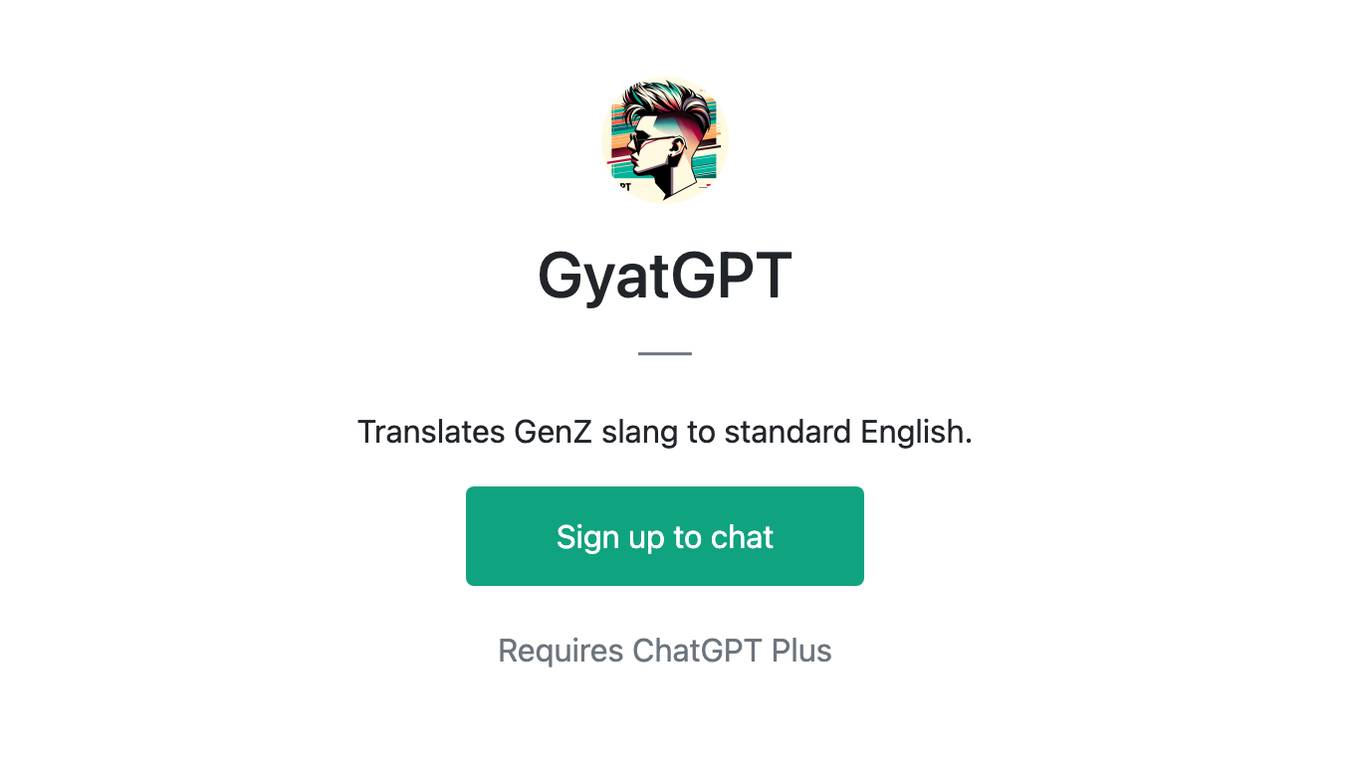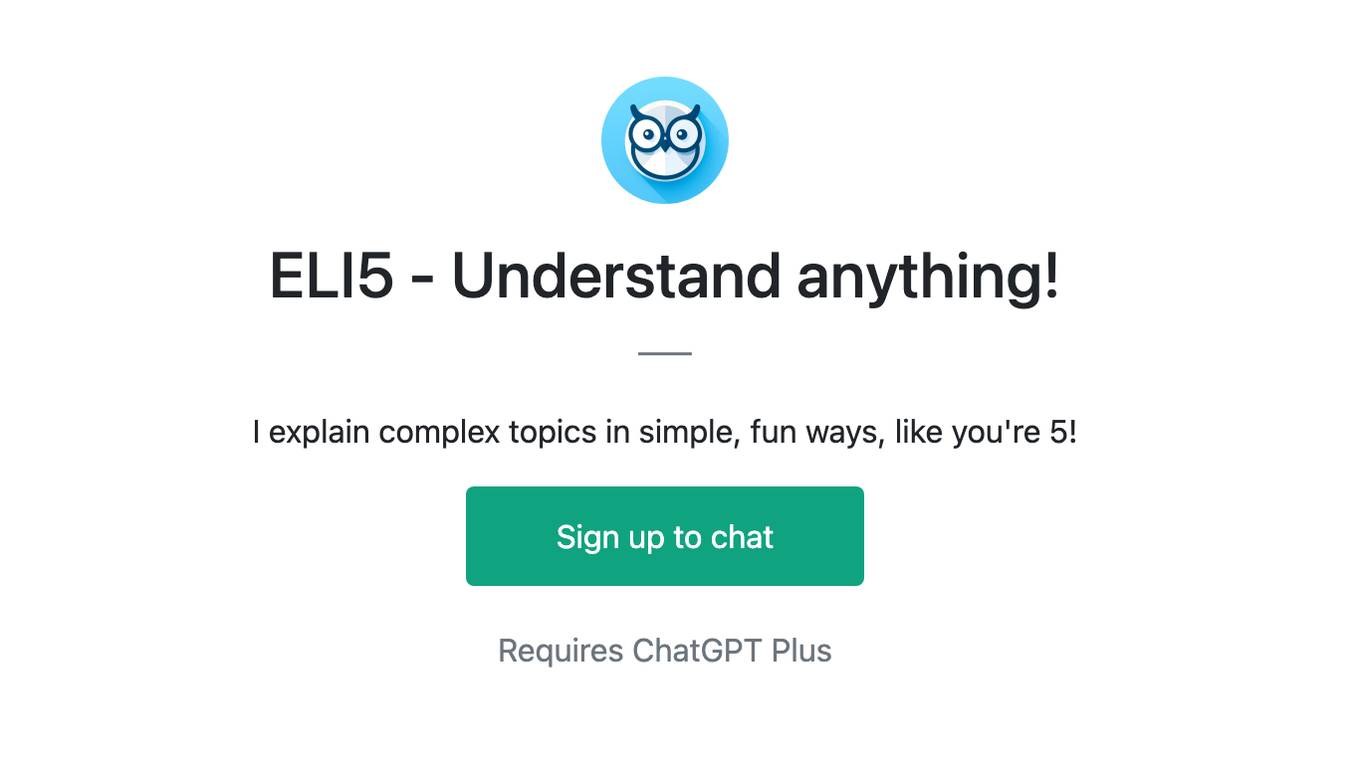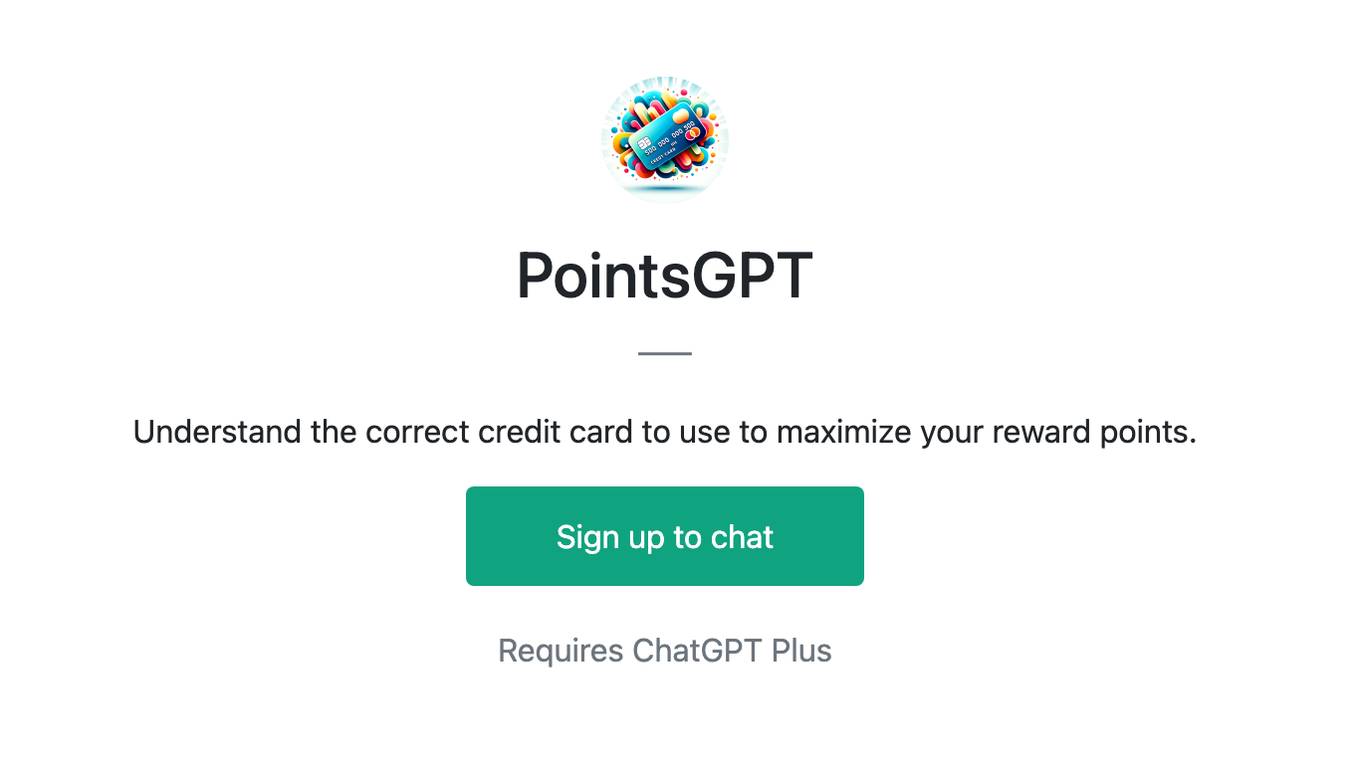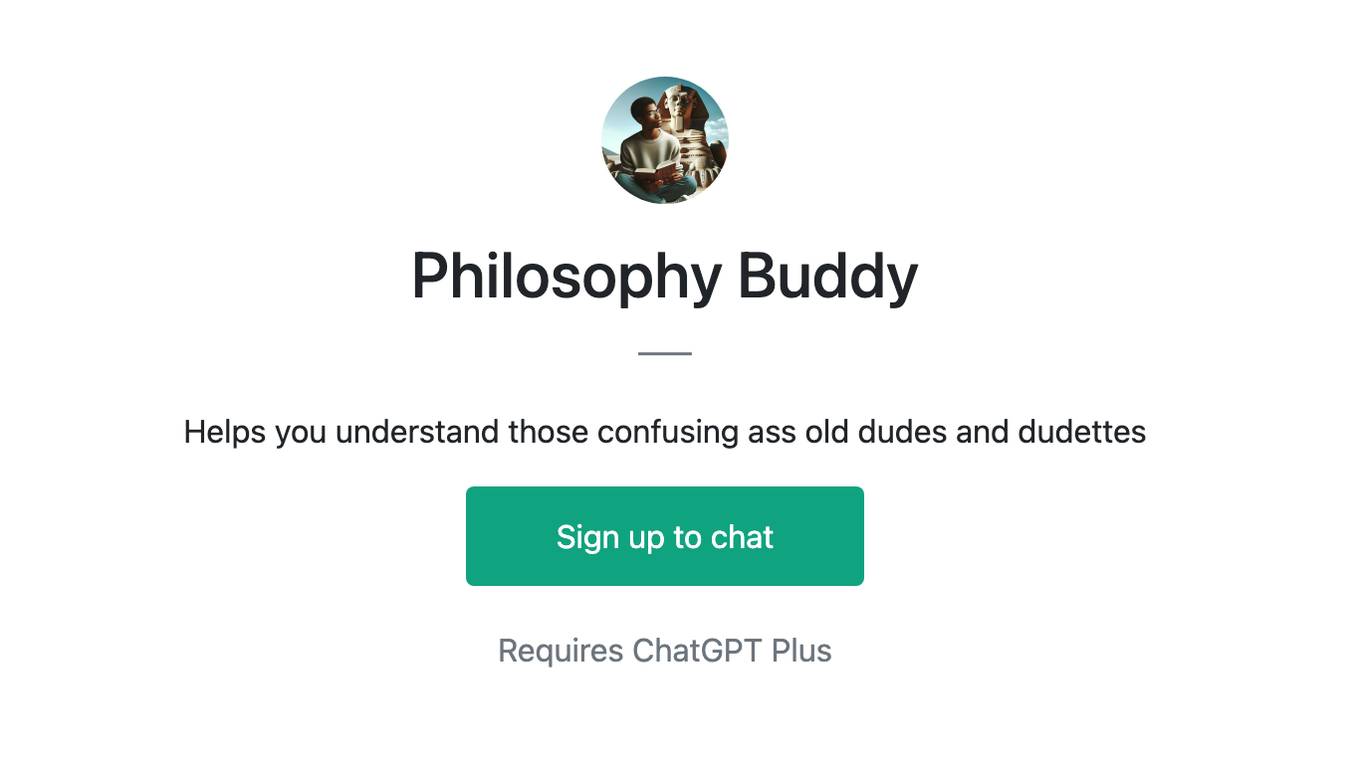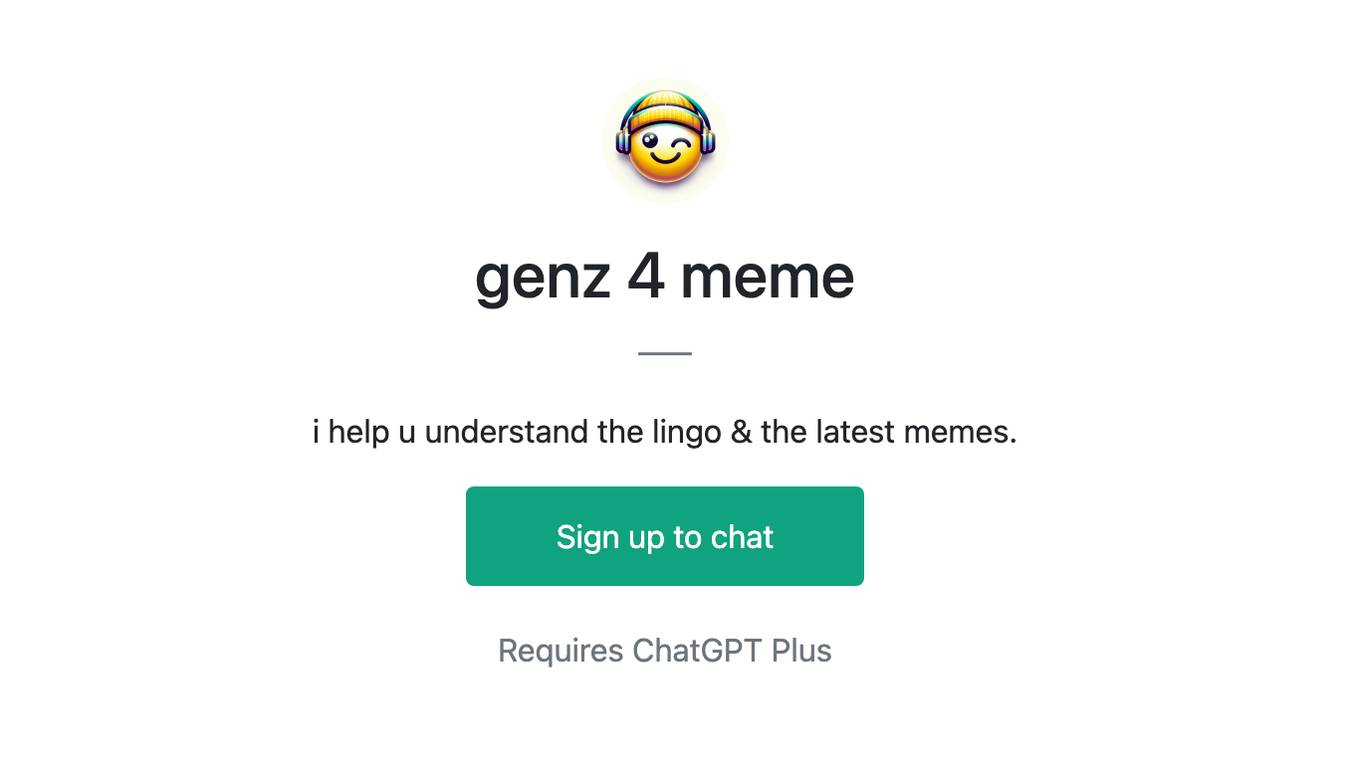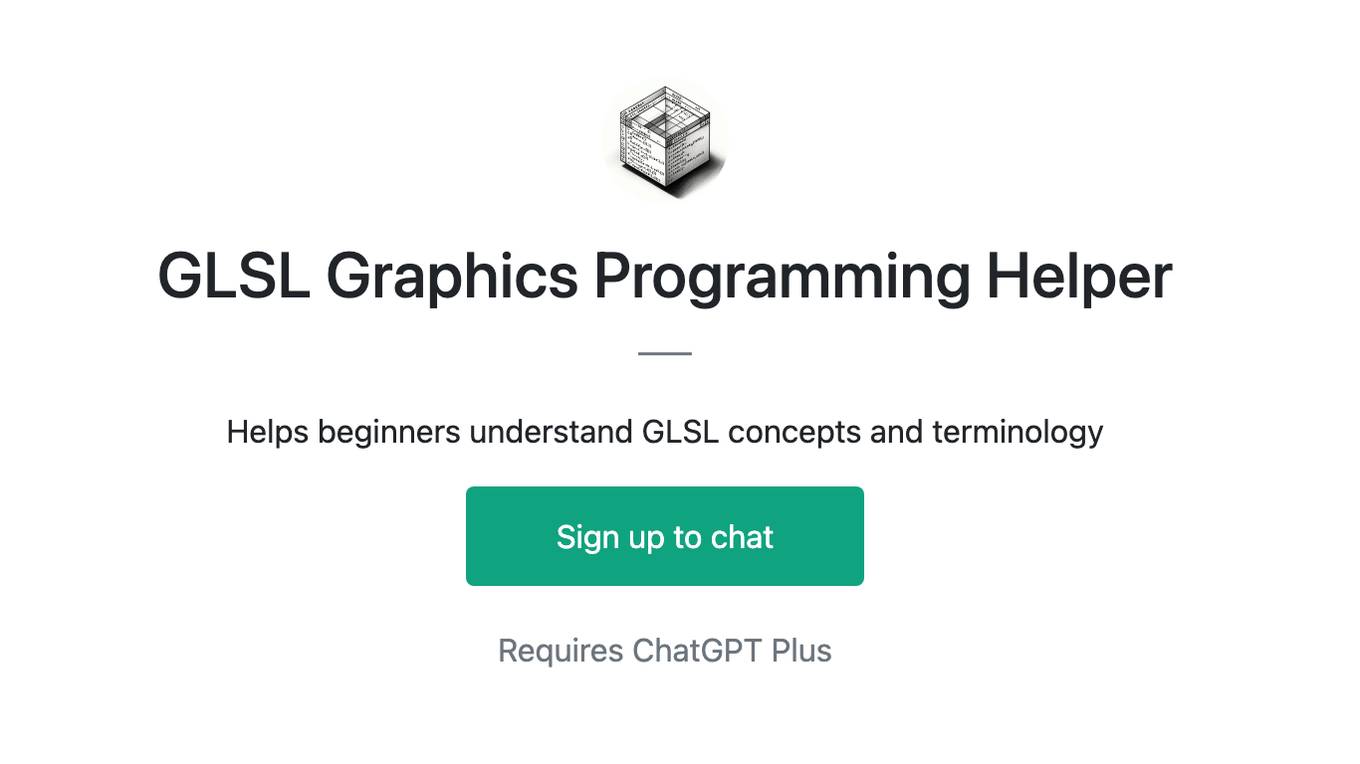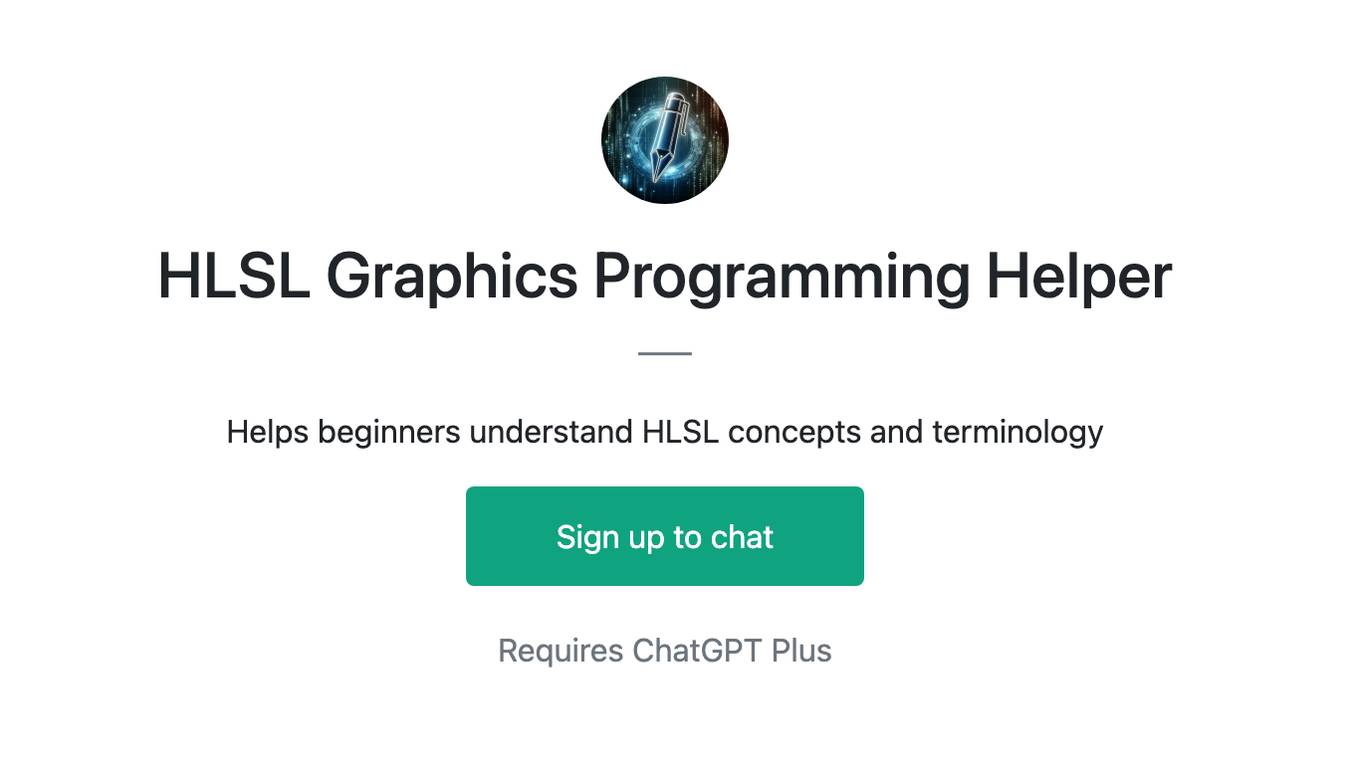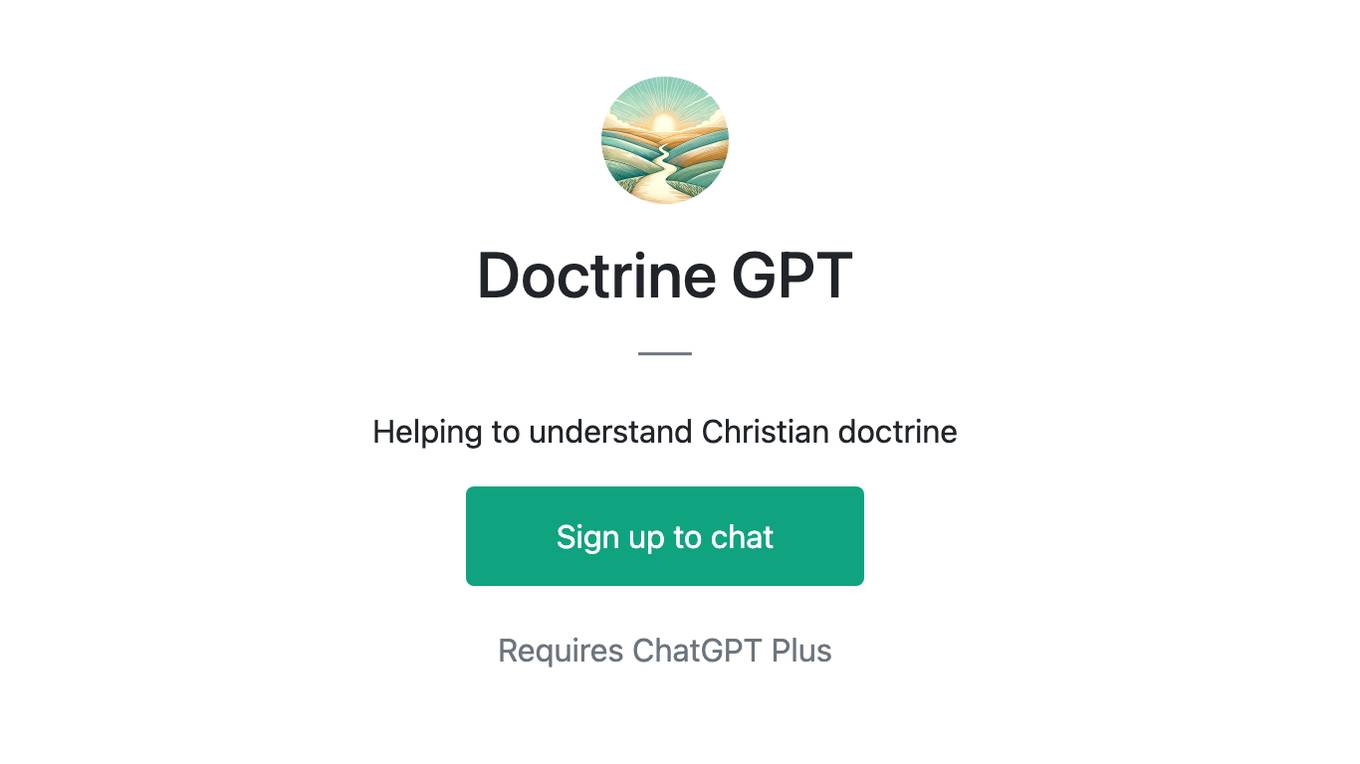Best AI tools for< Understand Standards >
20 - AI tool Sites
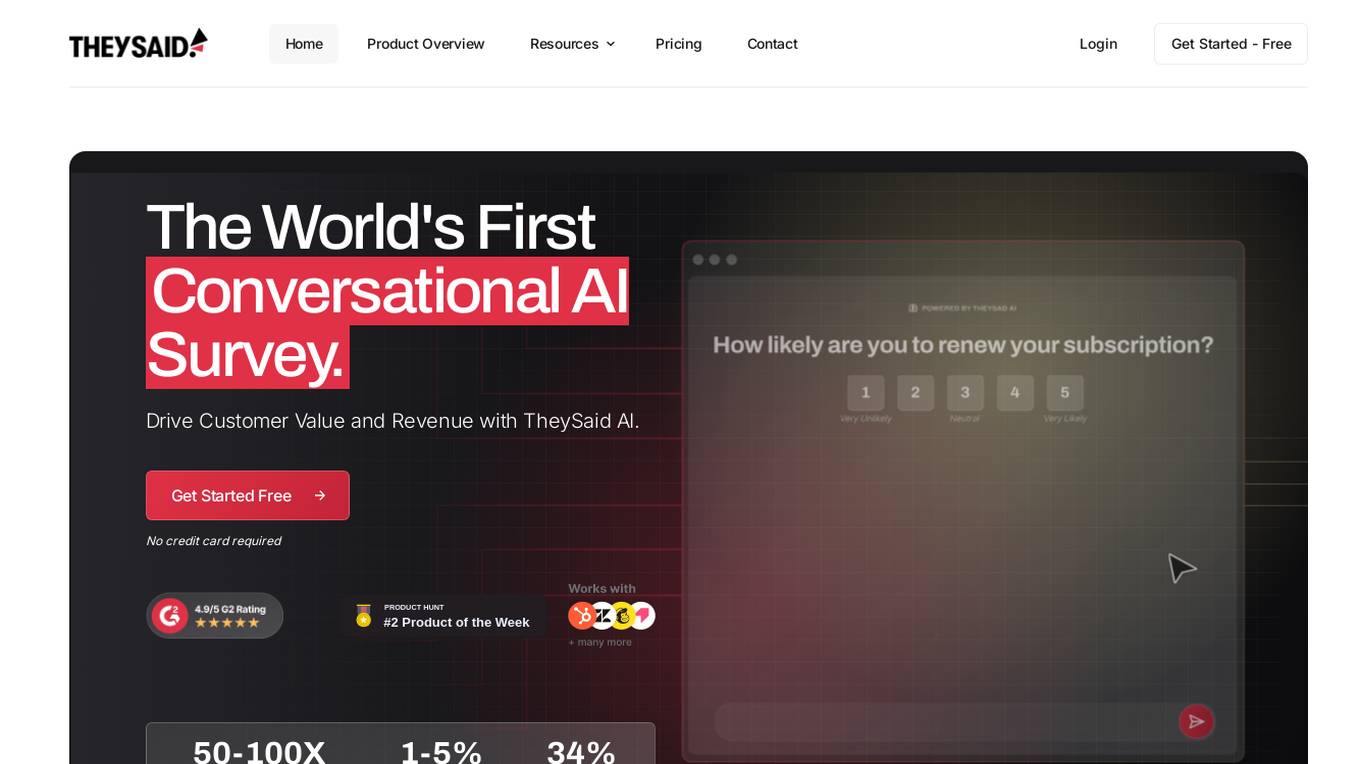
TheySaid
TheySaid is a Conversational AI Survey tool that helps businesses drive customer value and revenue through AI-powered surveys. It offers a unique approach of engaging audiences with one relevant question at a time, turning feedback into an ongoing dialogue. The AI tool scans websites to generate tailored survey questions, automates follow-ups with customers, and provides actionable insights based on industry standards and best practices. TheySaid's AI digs deeper by asking personalized follow-up questions in real-time, enhancing customer engagement and satisfaction.
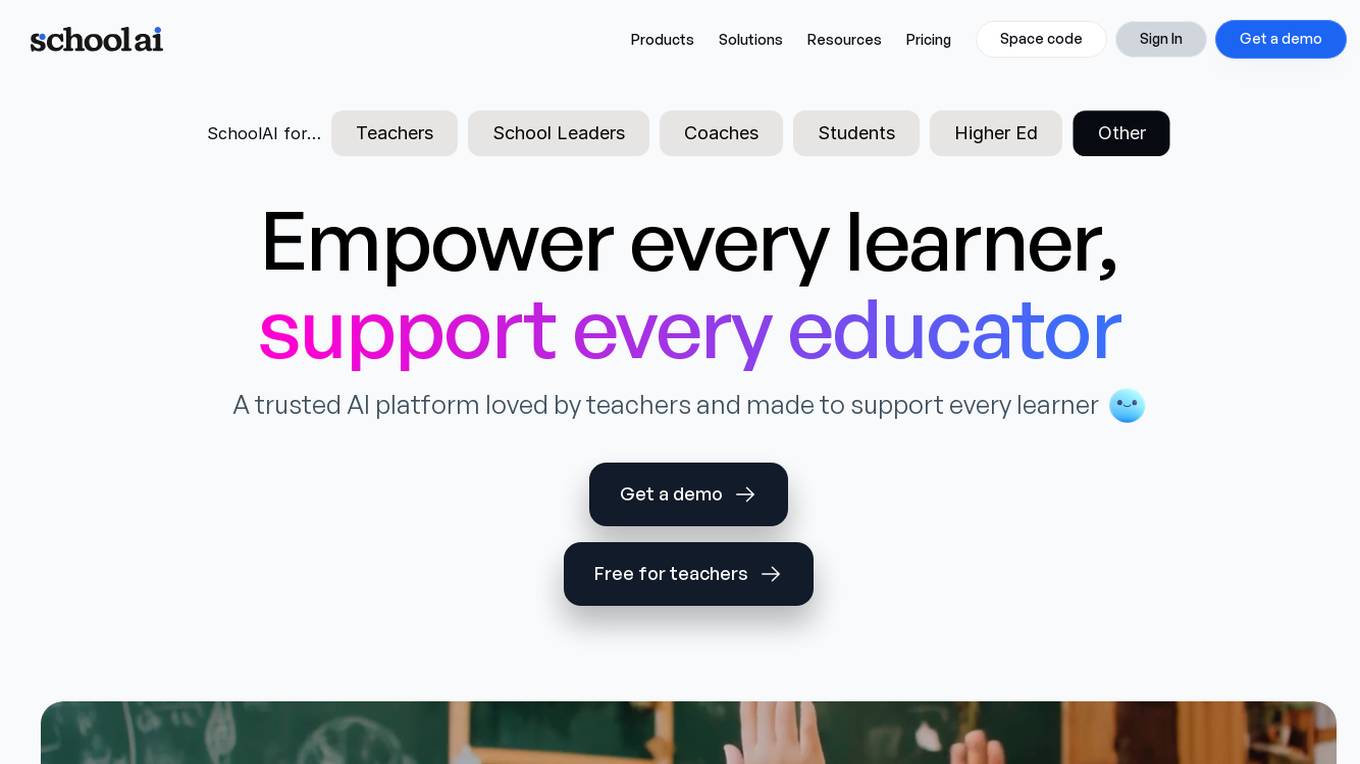
SchoolAI
SchoolAI is an AI platform designed to empower every learner and support educators in creating personalized learning experiences. It offers a range of features such as real-time student progress tracking, interactive lessons creation, and a browser extension for seamless integration. SchoolAI is trusted by over 1 million educators and provides tools to enhance student engagement and academic performance while maintaining high security and data privacy standards.
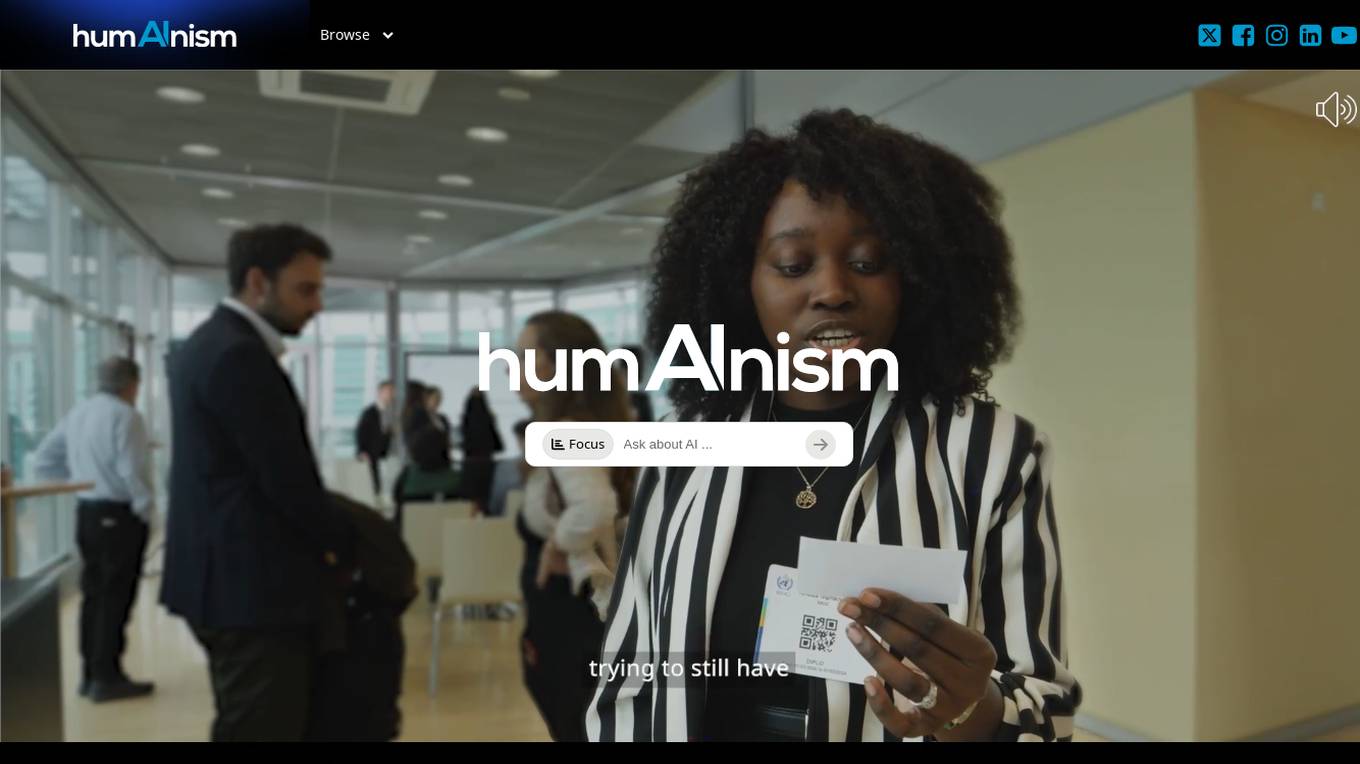
HumAInism
HumAInism is an AI application that focuses on AI governance, diplomacy, human studies, and the intersection of technology and humanity. It offers tools for explainability, transparency, standards, semantics, probability, aesthetics, and more. The platform aims to explore the ethical, societal, and philosophical implications of AI while providing practical solutions for governance and diplomacy.
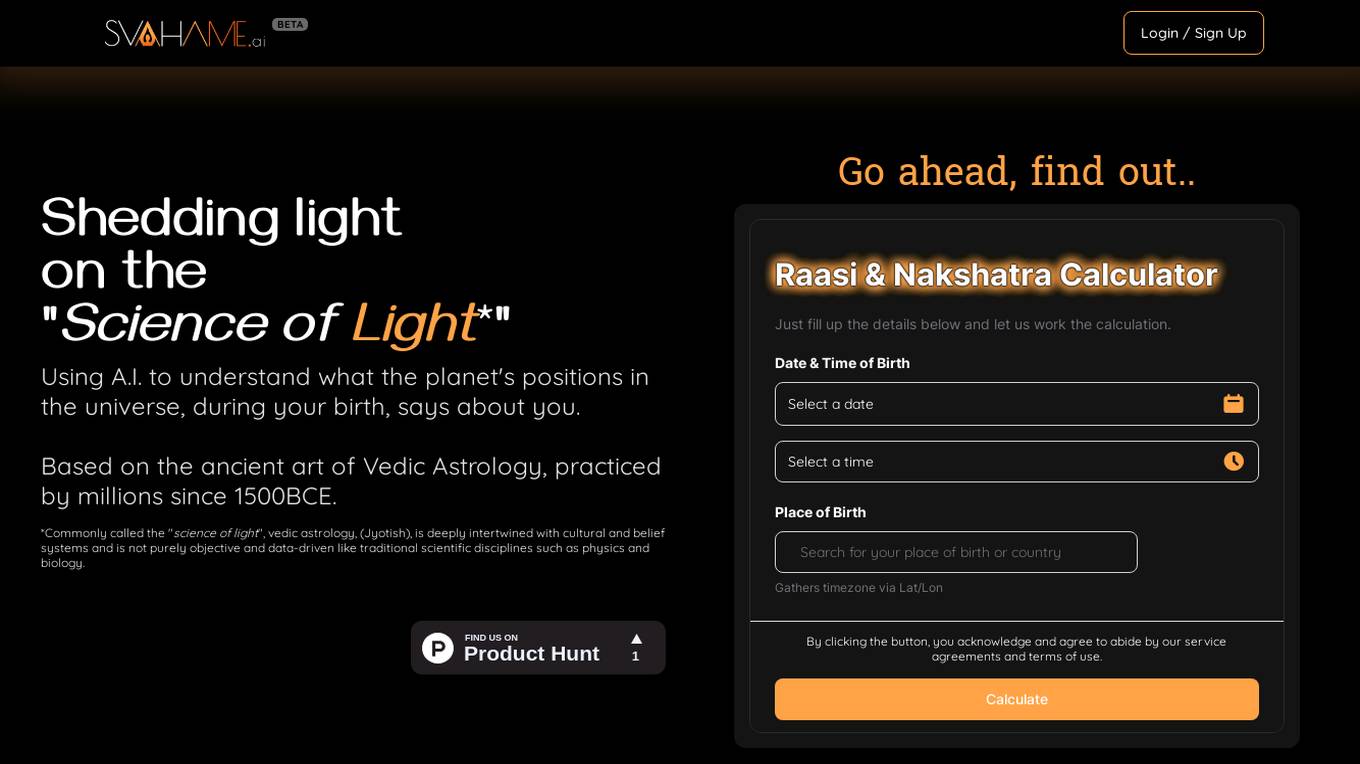
SvahaMe.ai
SvahaMe.ai is an AI-powered platform that offers Vedic Astrology services, providing interpretations based on the positions of planets during one's birth. It aims to make Vedic Astrology easily understandable and accessible, utilizing artificial intelligence to analyze over 20 Vedic charts for a comprehensive astrological profile. The platform also features an auspicious name generator and tools to explore celestial energies and cosmic identities. SvahaMe.ai emphasizes privacy and ethical standards, ensuring user data confidentiality.
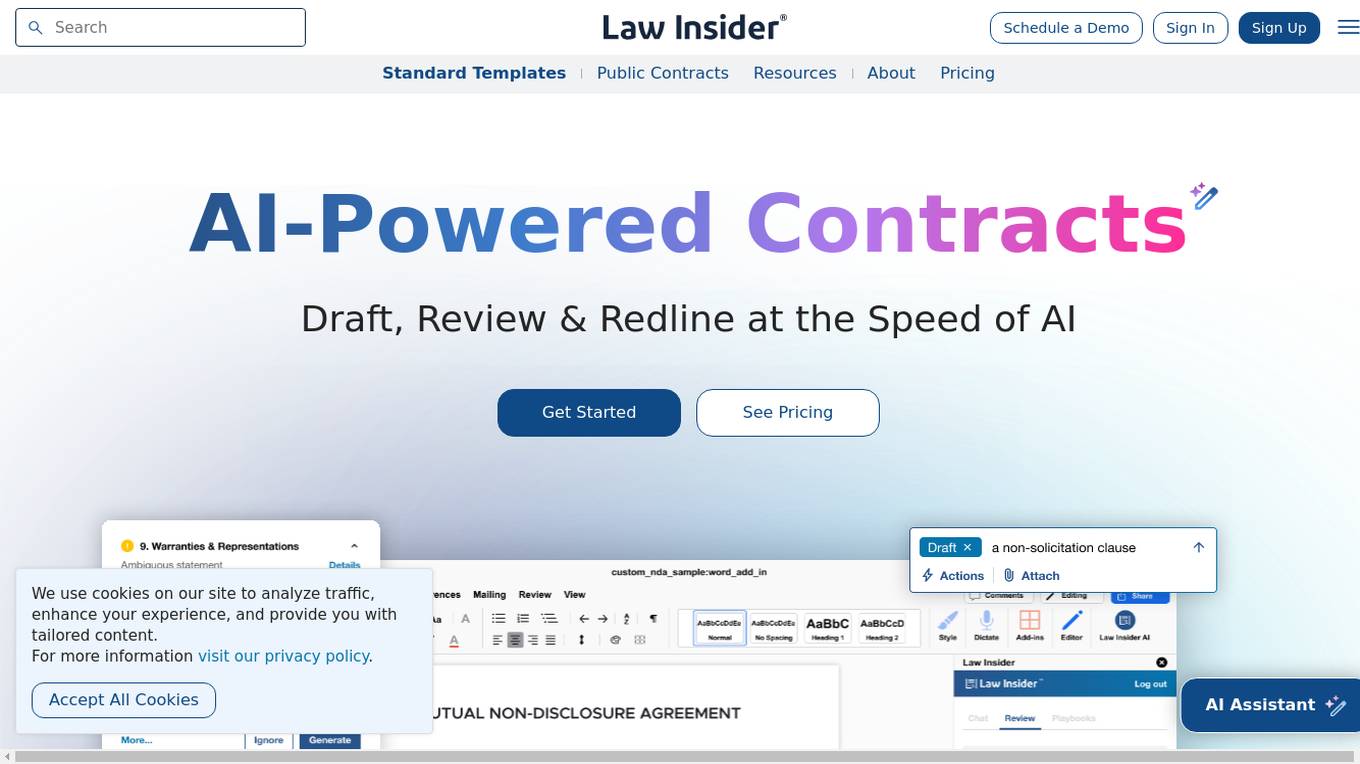
Law Insider
Law Insider is an AI-powered platform that offers contract drafting, review, and redlining services at the speed of AI. With over 10,000 customers worldwide, Law Insider provides standard templates, public contracts, and resources for legal professionals. Users can search for sample contracts and clauses using the Law Insider database or generate original drafts with the help of their AI Assistant. The platform also allows users to review and redline contracts directly in Microsoft Word, ensuring compliance with industry standards and expert playbooks. Law Insider's features include AI-powered contract review and redlining, benchmarking against the Law Insider Index, playbook builder, and upcoming AI clause drafting with trusted validation. Users can access the world's largest public contract database and watch tutorial videos to better understand the platform's capabilities.
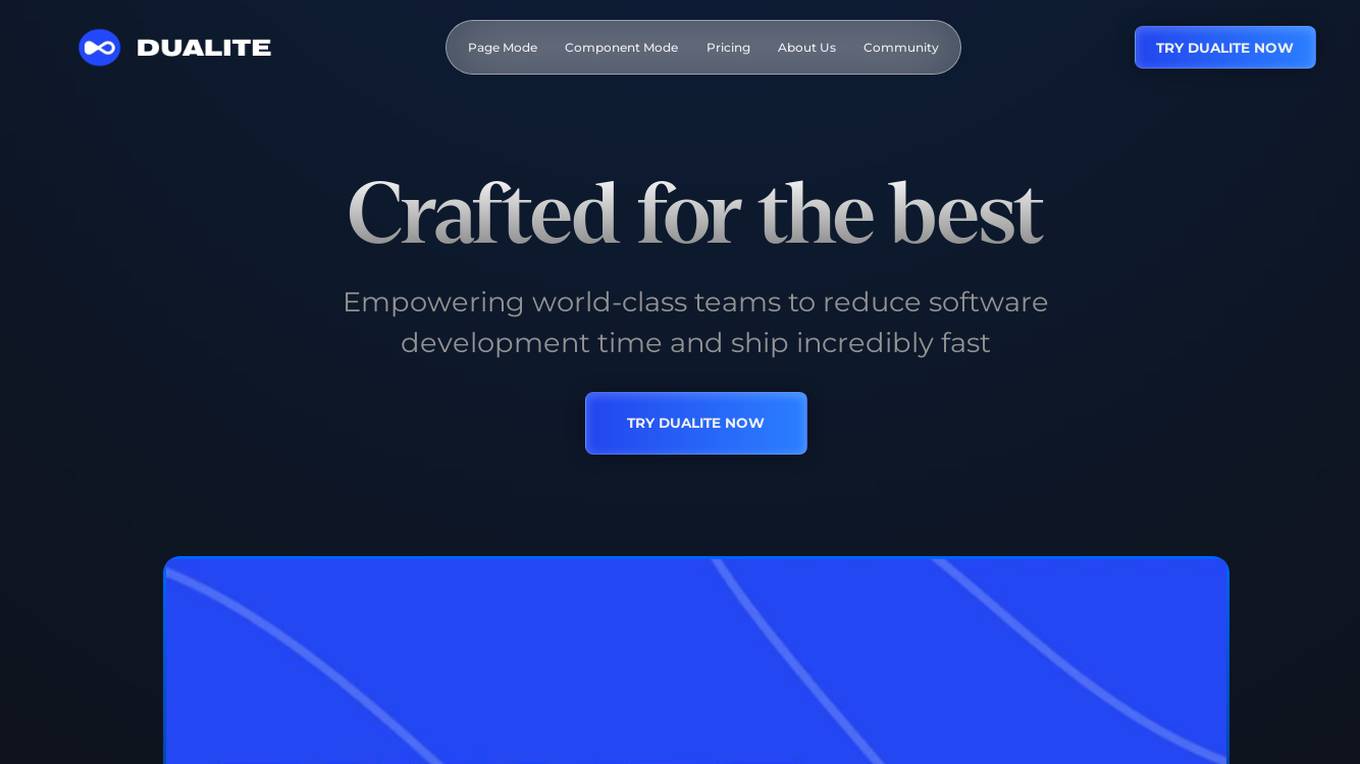
Dualite
Dualite is an AI-powered tool designed to automate frontend development by converting UI designs and prototypes into high-quality and reusable code. It aims to expedite product development speed significantly by streamlining the workflow and bridging the gap between designers and developers. Dualite offers two modes - Page Mode for designers and Component Mode for developers, with features such as fast conversion of complex designs to code, generating high-quality reusable code components, and understanding design semantics using AI. The tool is trusted by over 12K users and has received positive feedback for its accuracy, simplicity, and time-saving capabilities.
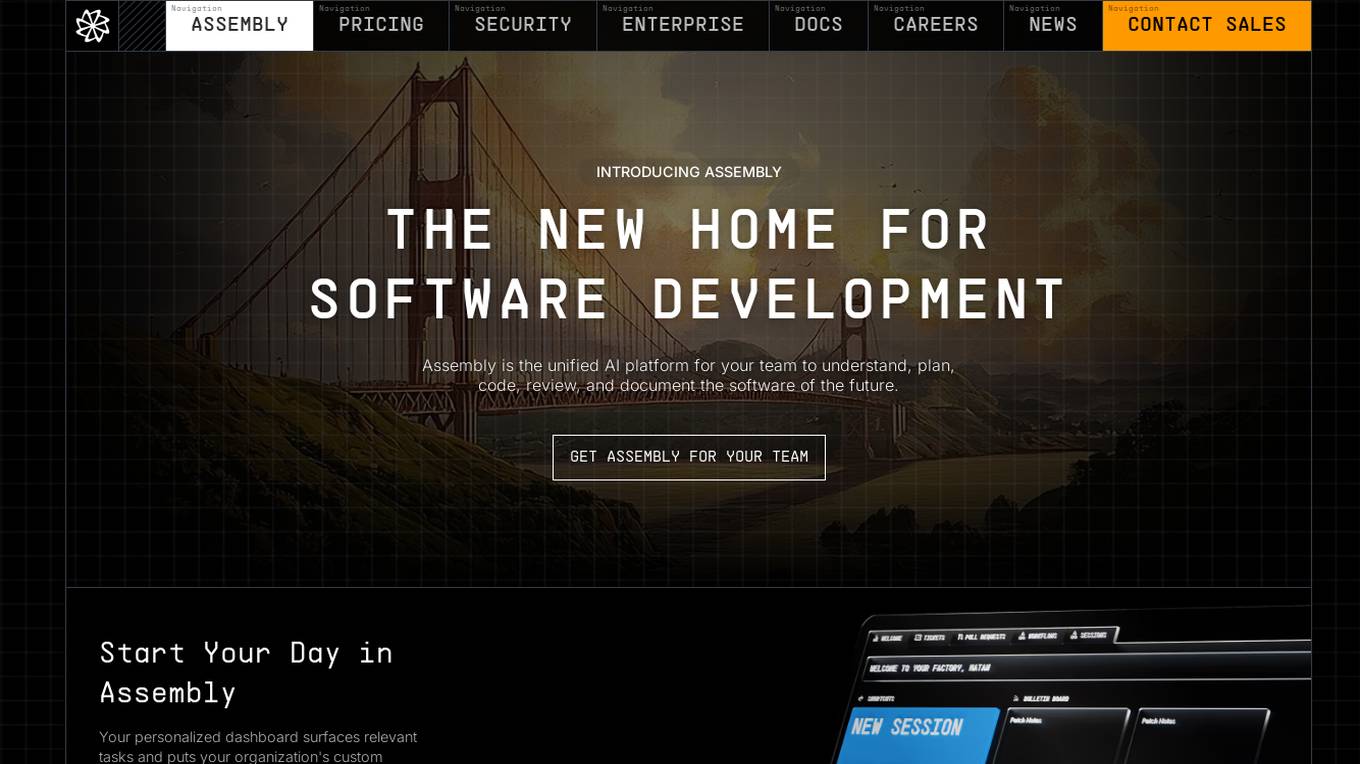
Factory AI
Factory AI is a unified AI platform designed to assist software development teams in understanding, planning, coding, reviewing, and documenting software projects. It enables collaboration between humans and AI, streamlining workflows and enhancing productivity. The platform offers features such as codebase Q&A, code review with AI assistance, development work tools, migration planning, document creation, and internal tool building. Factory AI is built for enterprise use, providing a unified context, enterprise-grade security, team collaboration, standardized workflows, and native workflows for building with premier dev tools.

Malformed Link Error Page
The website is a standard web page that displays an error message indicating a malformed link. It advises users to contact the editor of the originating page for assistance. The site does not appear to be an AI tool or application, but rather a basic informational page for handling link errors.
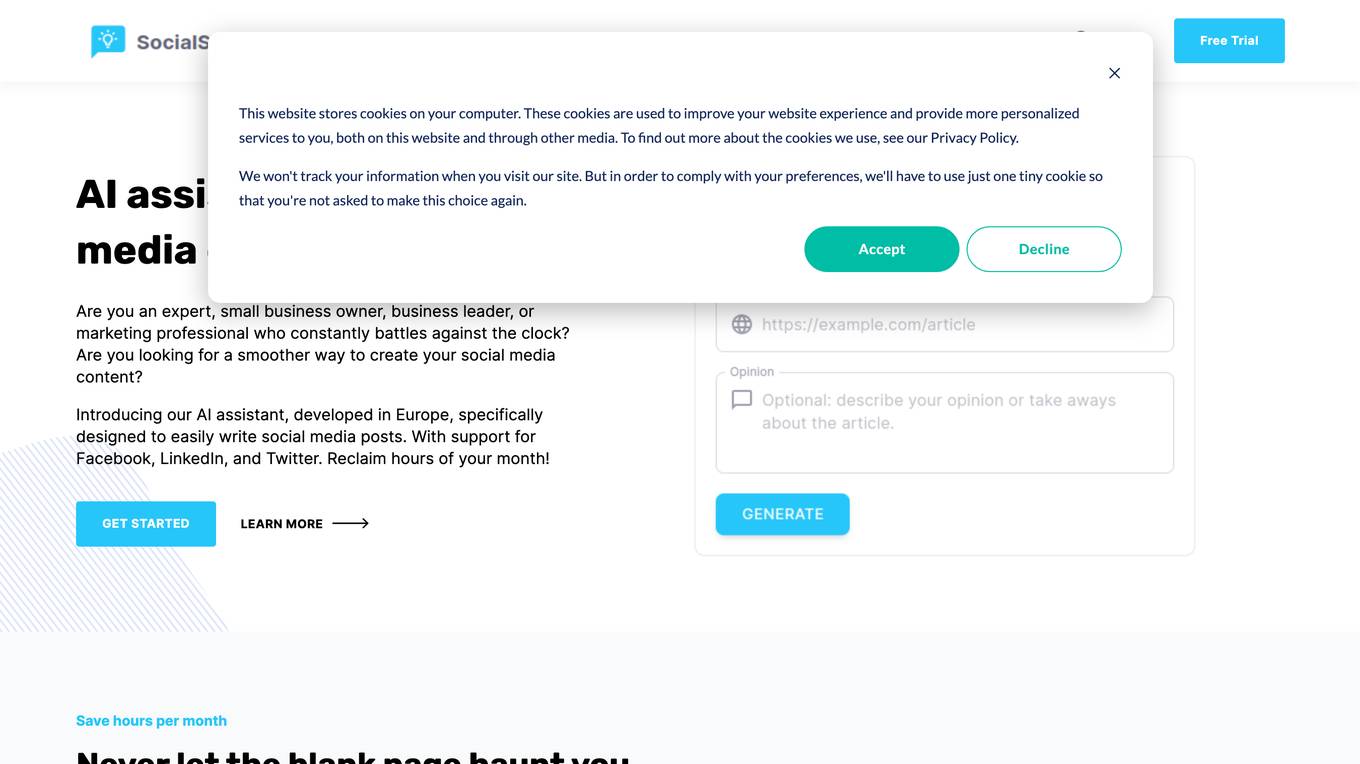
Generic Website Template
The website is a standard web page that seems to be a generic template with placeholder text. It does not provide any specific information or functionality. The page mentions that the requested page is not found and encourages users to go to the home page. The website includes basic navigation elements such as a menu and social media icons. The footer contains a copyright notice for the year 2024.
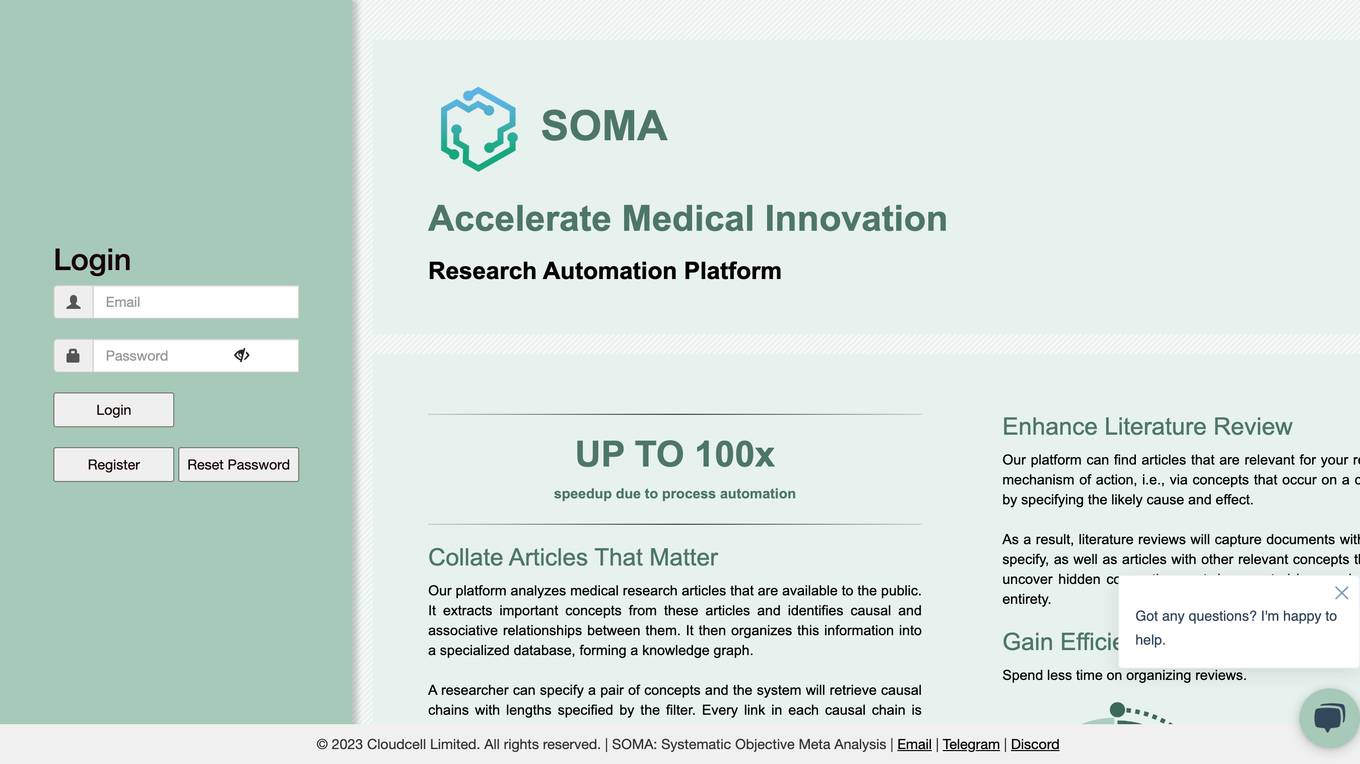
502 Bad Gateway
The website is experiencing a 502 Bad Gateway error, which indicates that the server, while acting as a gateway or proxy, received an invalid response from an inbound server. This error message is a standard response code in HTTP status codes. The issue may be temporary and could be due to server misconfiguration, overload, or maintenance. Users encountering a 502 Bad Gateway error should wait and refresh the page later to see if the problem resolves.
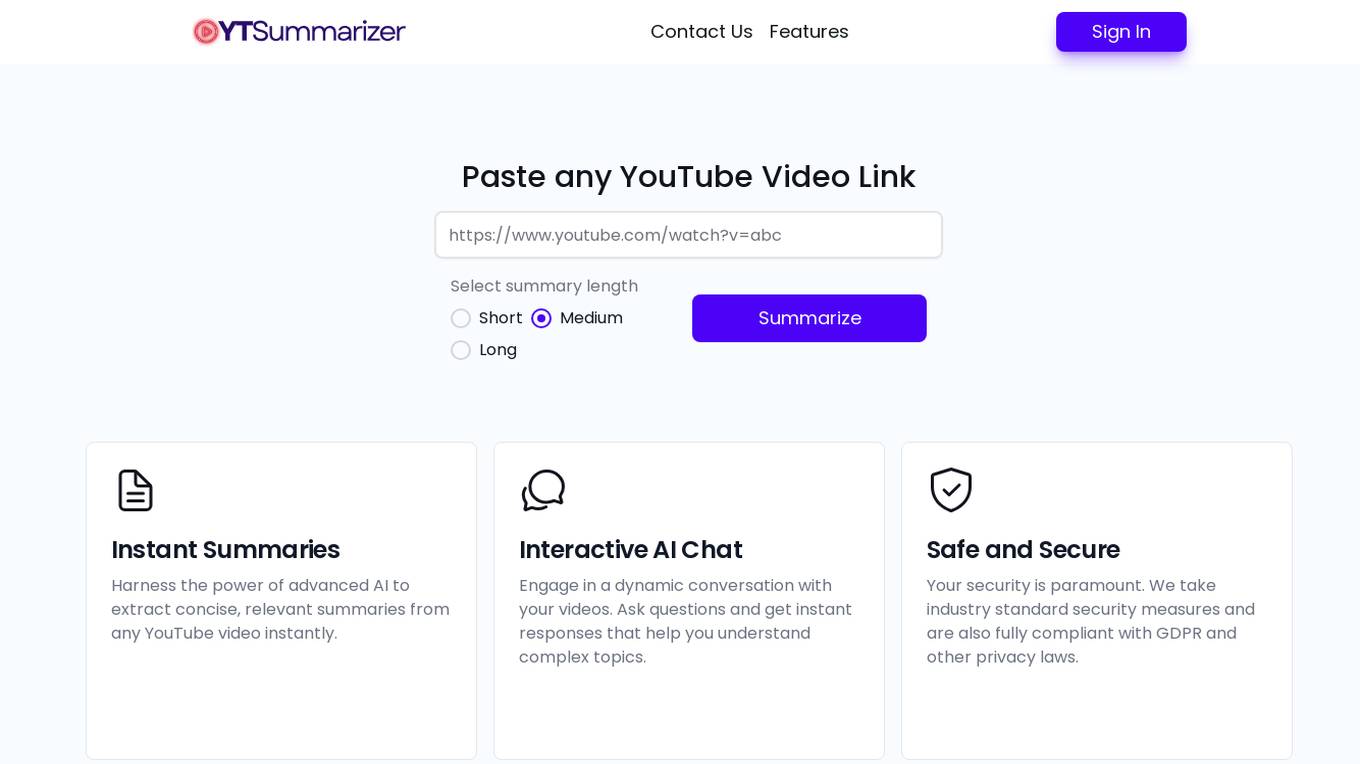
YTSummarizer
YTSummarizer is an AI tool that allows users to summarize and engage in interactive chat with any YouTube video. By harnessing the power of advanced AI technology, the tool extracts concise and relevant summaries from videos instantly. Users can have dynamic conversations with their videos, ask questions, and receive instant responses to help them understand complex topics. The tool prioritizes user security by implementing industry standard security measures and complying with GDPR and other privacy laws.
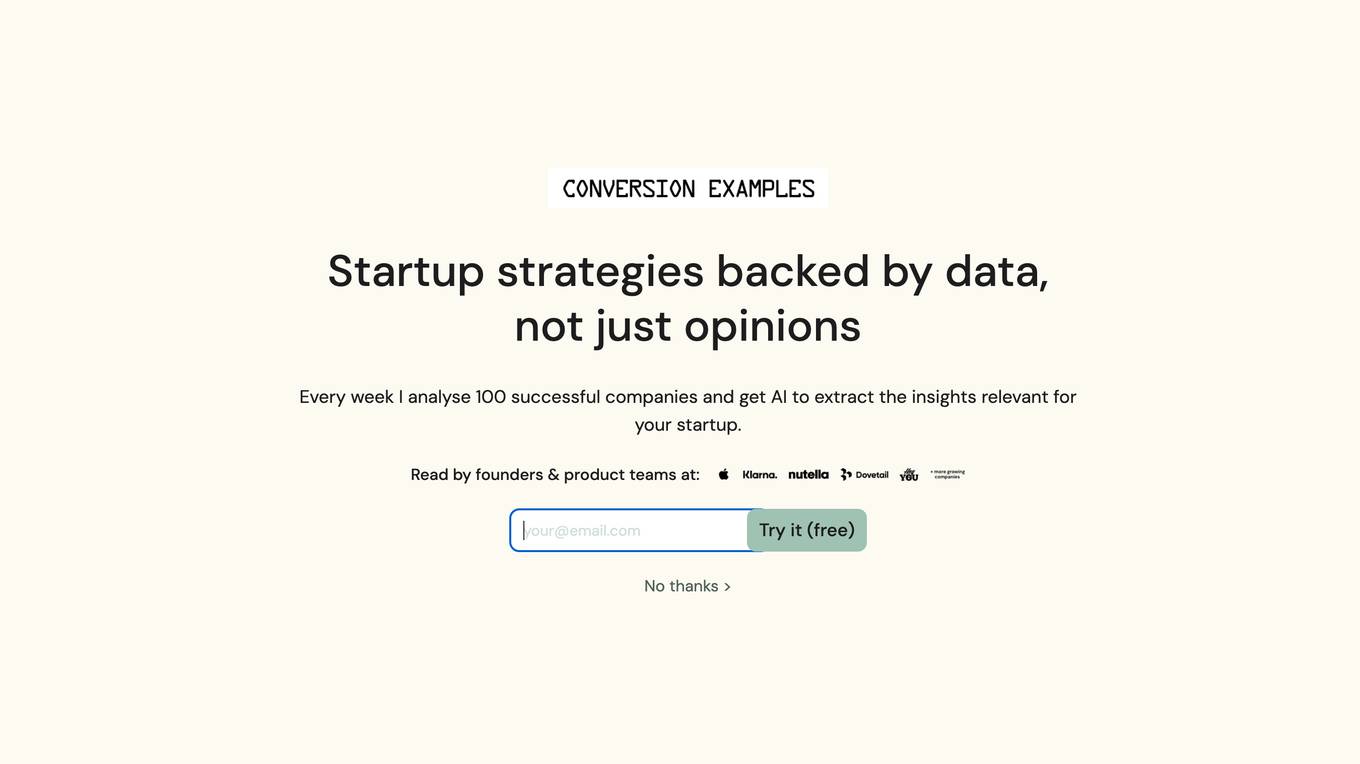
403 Forbidden
The website appears to be displaying a '403 Forbidden' error message, indicating that access to the page is restricted or denied. This error is commonly encountered when the server understands the request but refuses to authorize it. The message '403 Forbidden' is a standard HTTP status code that communicates this refusal to the client. It may be due to insufficient permissions, IP blocking, or other security measures. The 'openresty' mentioned in the text is likely the software or server platform being used to host the website.

Qualint
Qualint is an AI-driven platform revolutionizing call center quality assurance. It empowers call centers with superior analytics, comprehensive call analysis, and streamlined operations. The platform provides real-time insights, tailored quality standards, and enhances collaboration to ensure every customer interaction is understood. Qualint offers core features such as real-time call uploads & analysis, efficiency improvement, information accessibility, and team communication. With different pricing plans, Qualint caters to call centers of all sizes, from small to large, helping them optimize agent performance, navigate regulatory challenges, and elevate customer service.
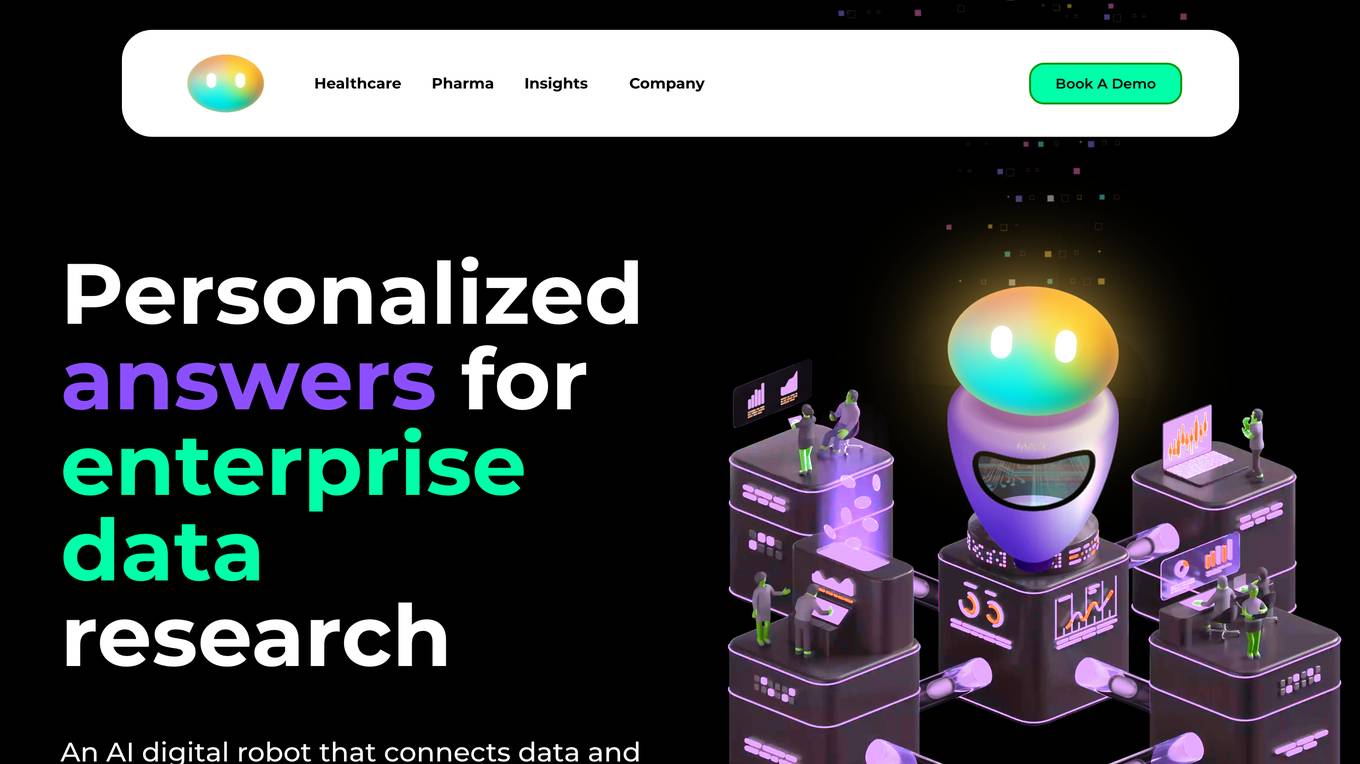
Maya
Maya is an AI-powered data robot that provides personalized answers and insights for enterprise data research. It combines multiple data sources and tools into one, automates tasks, offers smart suggestions, and saves time. Maya understands the specific insights required for each workflow and provides justification for implementation. It can access data from various sources, including internal integrations and external sources, and can translate queries in up to 14 languages. Maya is constantly learning and improving through advanced machine learning and regular updates with new data. It prioritizes data privacy and security, following industry-standard protocols to keep customer data safe.
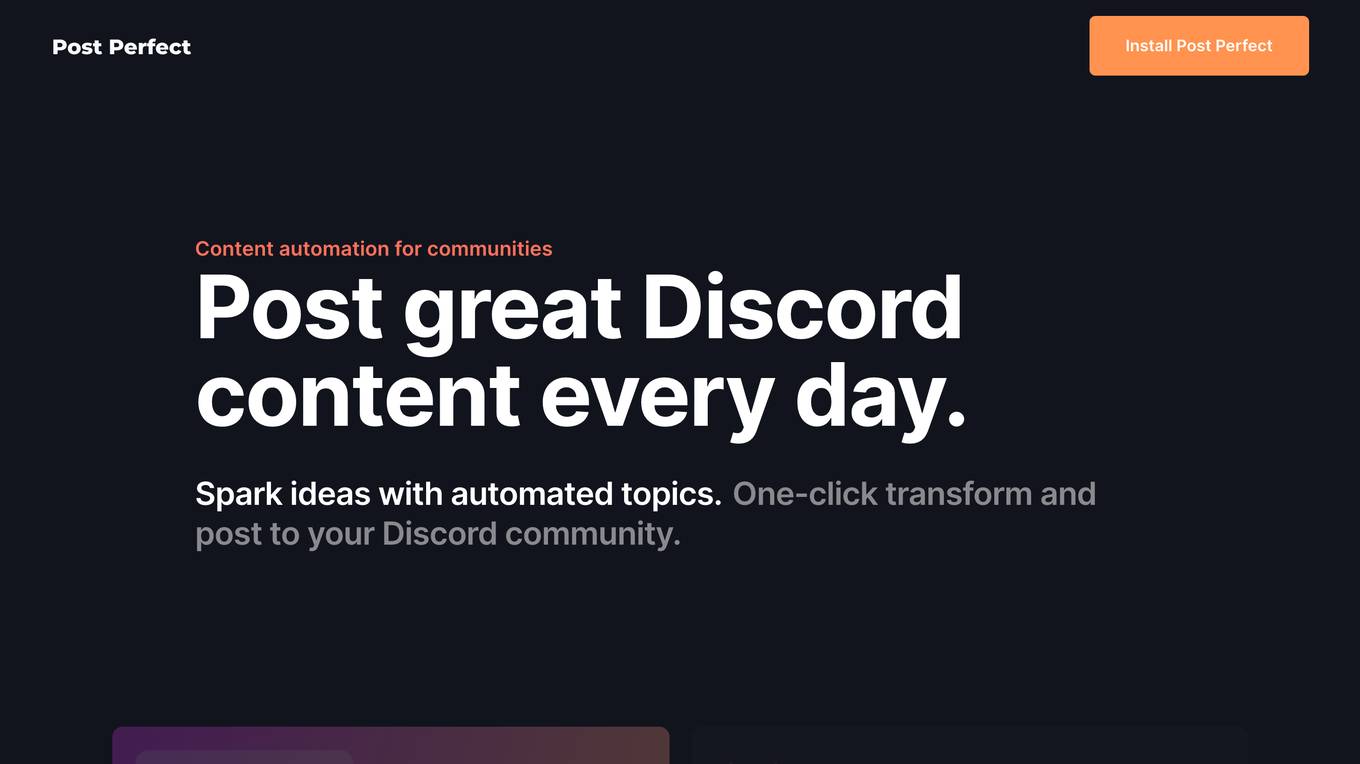
403 Forbidden
The website seems to be experiencing a 403 Forbidden error, which indicates that the server is refusing to respond to the request. This error is often caused by incorrect permissions on the server or misconfigured security settings. The message '403 Forbidden' is a standard HTTP status code that indicates the server understood the request but refuses to authorize it. It is not related to AI technology or applications.

xAI Grok
xAI Grok is a visual analytics platform that helps users understand and interpret machine learning models. It provides a variety of tools for visualizing and exploring model data, including interactive charts, graphs, and tables. xAI Grok also includes a library of pre-built visualizations that can be used to quickly get started with model analysis.
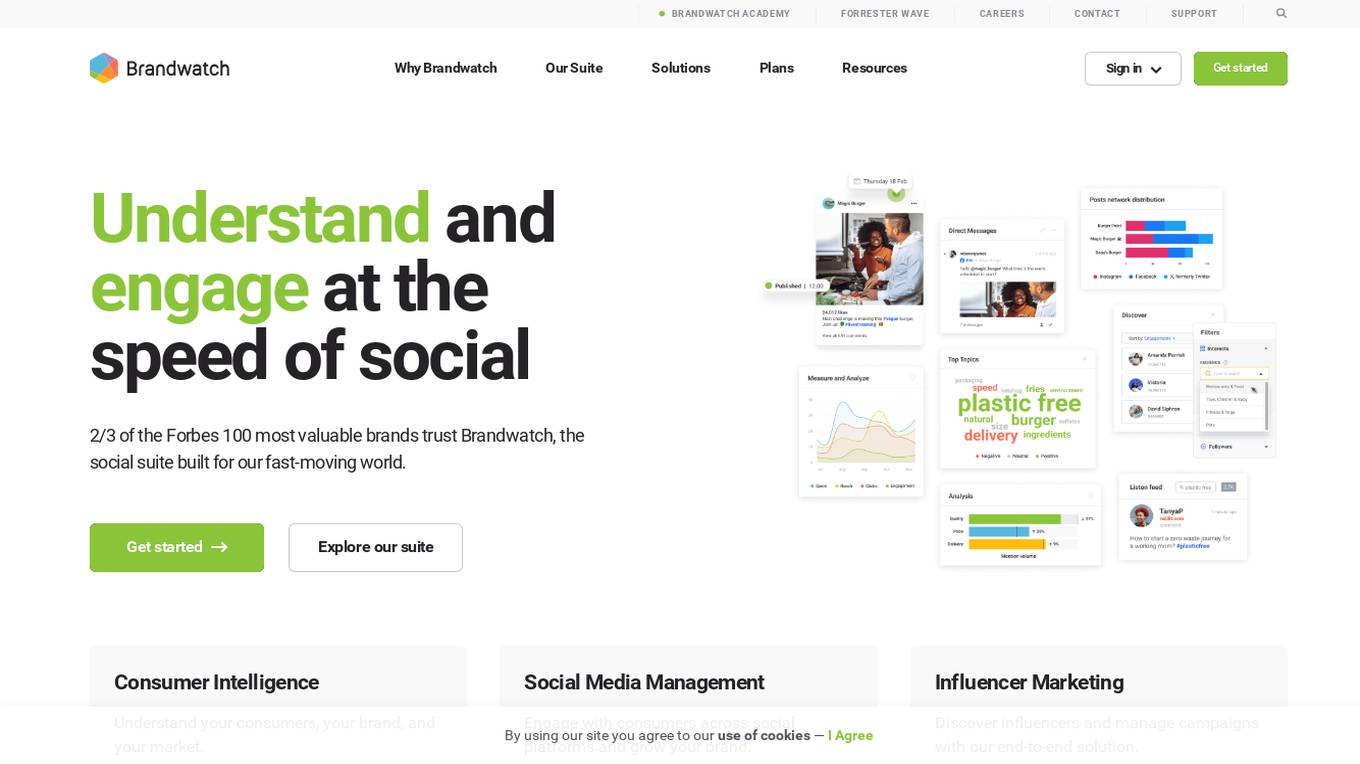
Brandwatch
Brandwatch is a social media management and analytics platform that helps businesses understand and engage with their customers. It offers a range of features, including social listening, influencer marketing, and content management. Brandwatch is used by some of the world's largest brands, including Virgin Holidays, OnePlus, and Metia.
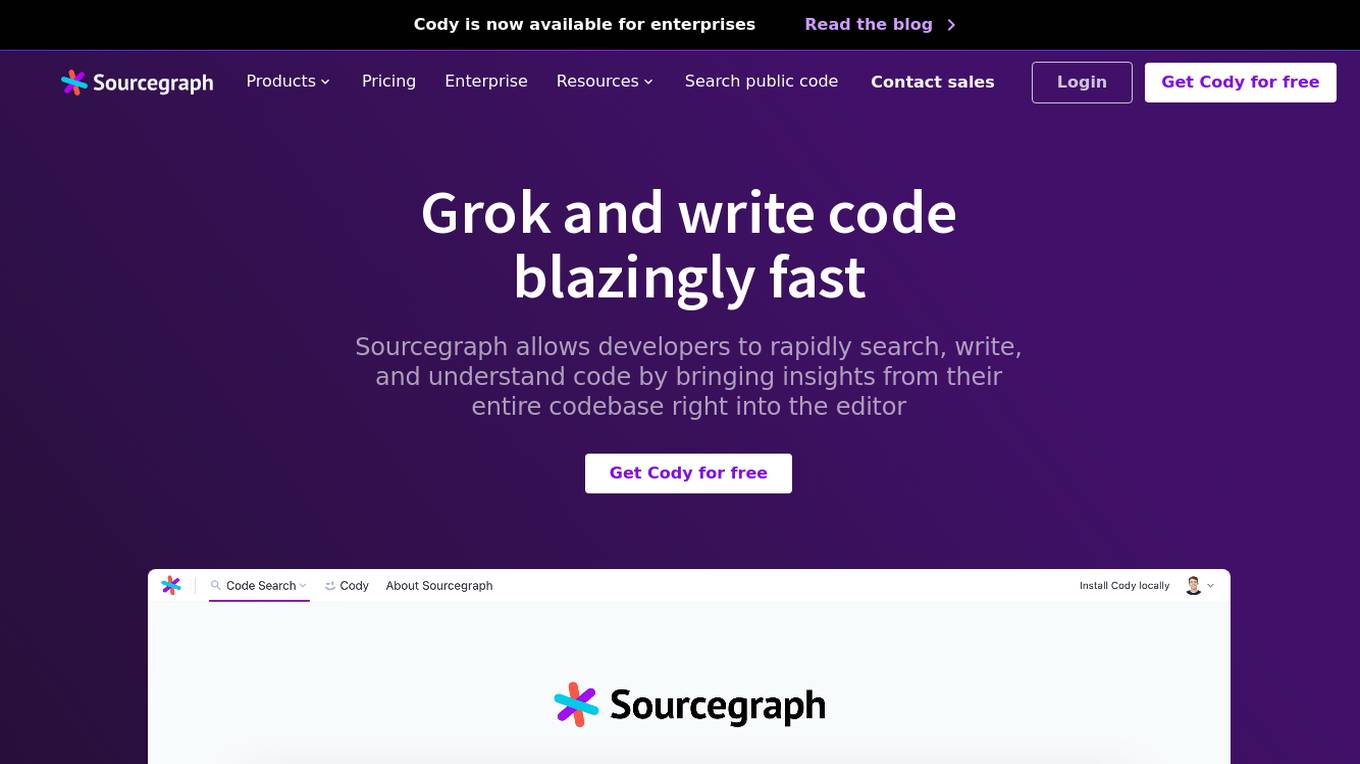
Sourcegraph
Sourcegraph is a code intelligence platform that helps developers write, fix, and maintain code faster. It uses artificial intelligence to understand the code graph and provide insights that help developers focus on writing and shipping code. Sourcegraph is used by over 2.5 million engineers at companies like Google, Amazon, and Microsoft.
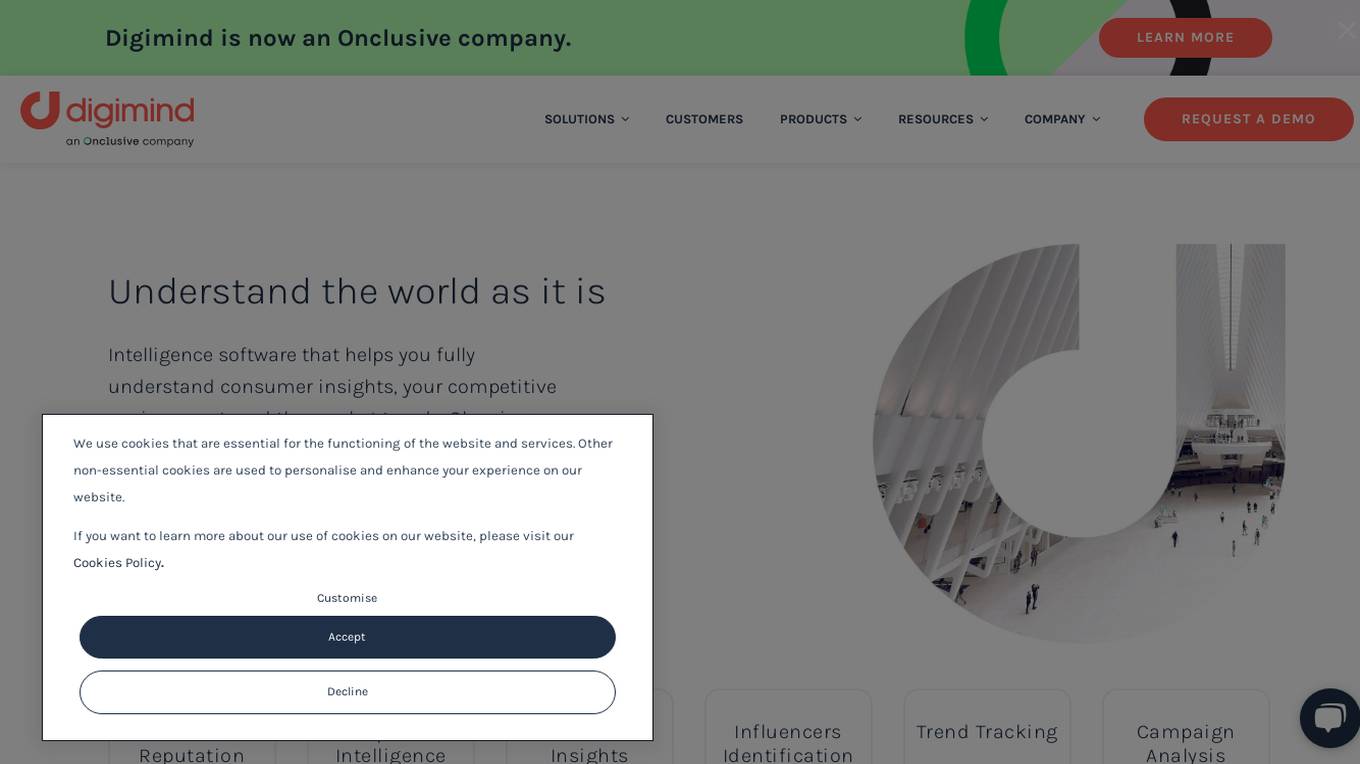
Digimind
Digimind is an intelligence software platform that provides solutions for brand reputation, competitive intelligence, consumer insights, influencer identification, trend tracking, and campaign analysis. It leverages Artificial Intelligence (AI) to collect and analyze billions of content pieces, offering real-time market intelligence and helping users fully understand consumer insights and market trends. The platform is trusted by global brands and agencies, offering easy-to-read, up-to-date analysis and reports. Digimind's AI Sense technology provides automated curation and recommended actions, delivering compelling reports instantly.
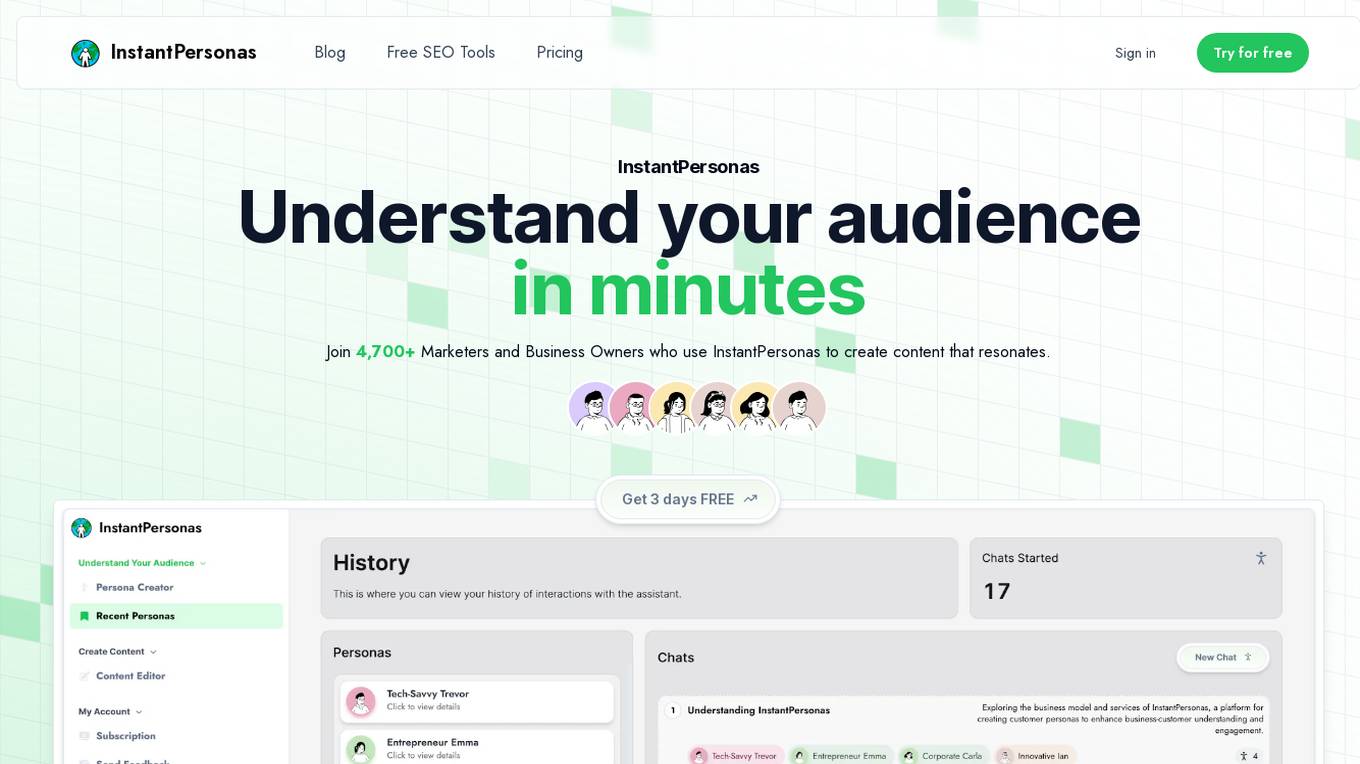
InstantPersonas
InstantPersonas is an AI-powered tool that allows users to generate detailed user personas in seconds. It helps marketers and business owners understand their audience better by providing real-time insights into the thoughts of their audience. With InstantPersonas, users can create persona-driven content that resonates with their target audience, ultimately improving their content creation process and marketing strategies. The tool offers industry-leading AI capabilities at an affordable price, making it a valuable asset for businesses looking to enhance their marketing efforts.
1 - Open Source AI Tools
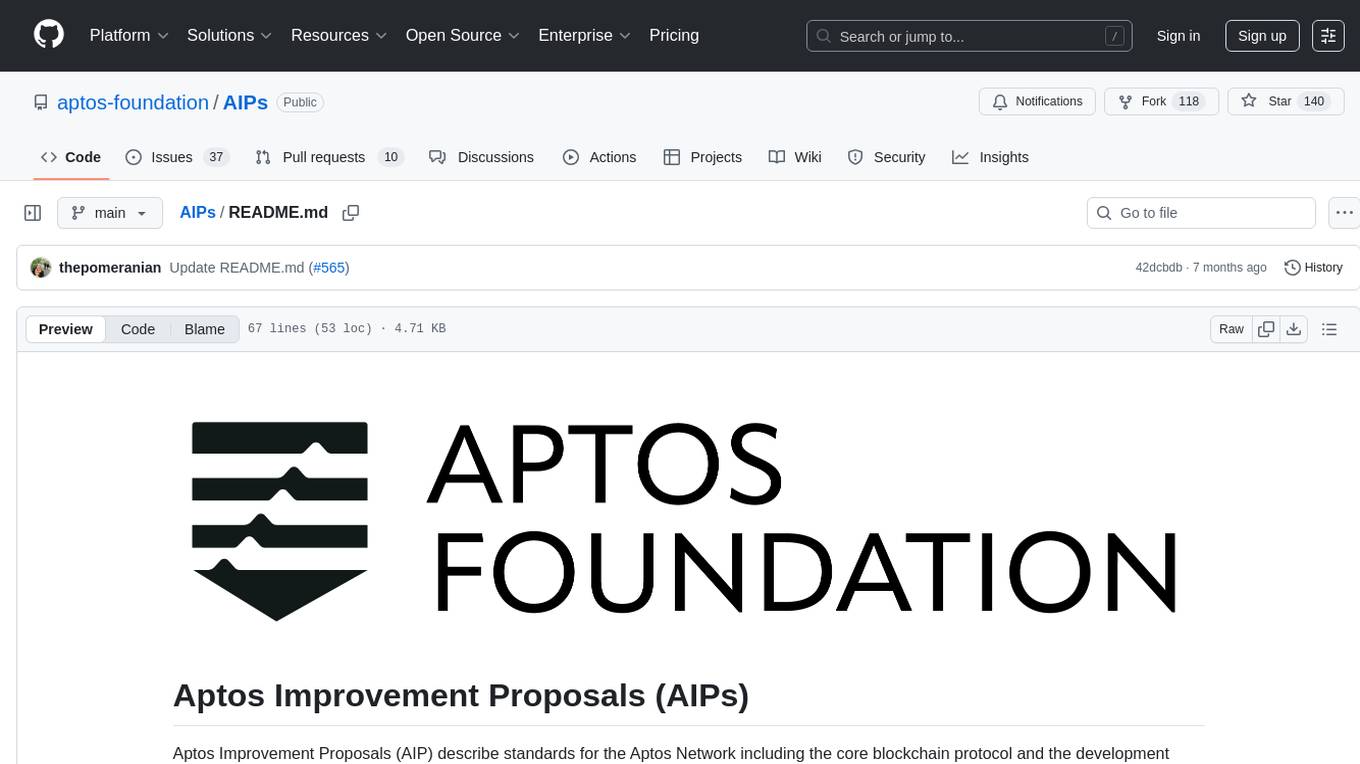
AIPs
Aptos Improvement Proposals (AIP) describe standards for the Aptos Network including the core blockchain protocol and the development platform (Move), smart contracts and systems for smart contract verification, standards for the deployment and operation of the Aptos Network, APIs for accessing the Aptos Network and processing information from the Aptos Network. AIPs are intended to cover changes that impact active services within the Aptos ecosystem. The AIP issue tracker can be used to store exploratory proposals. To submit an AIP, users need to fork the repository, copy the template file, edit the AIP file, commit changes, and submit a pull request. AIPs are categorized as Standard and Informational, with different statuses like Draft, In Review, Ready for Approval, Accepted, Rejected, and On Hold. Users can provide feedback on AIPs by following discussions, evaluating communication clarity, and understanding the impact on the community.
20 - OpenAI Gpts

The Riggorous Guide to Structure
Irritating Northern advisor on UK building regs for structure. Based on Oliver Rigg and Approved Document A
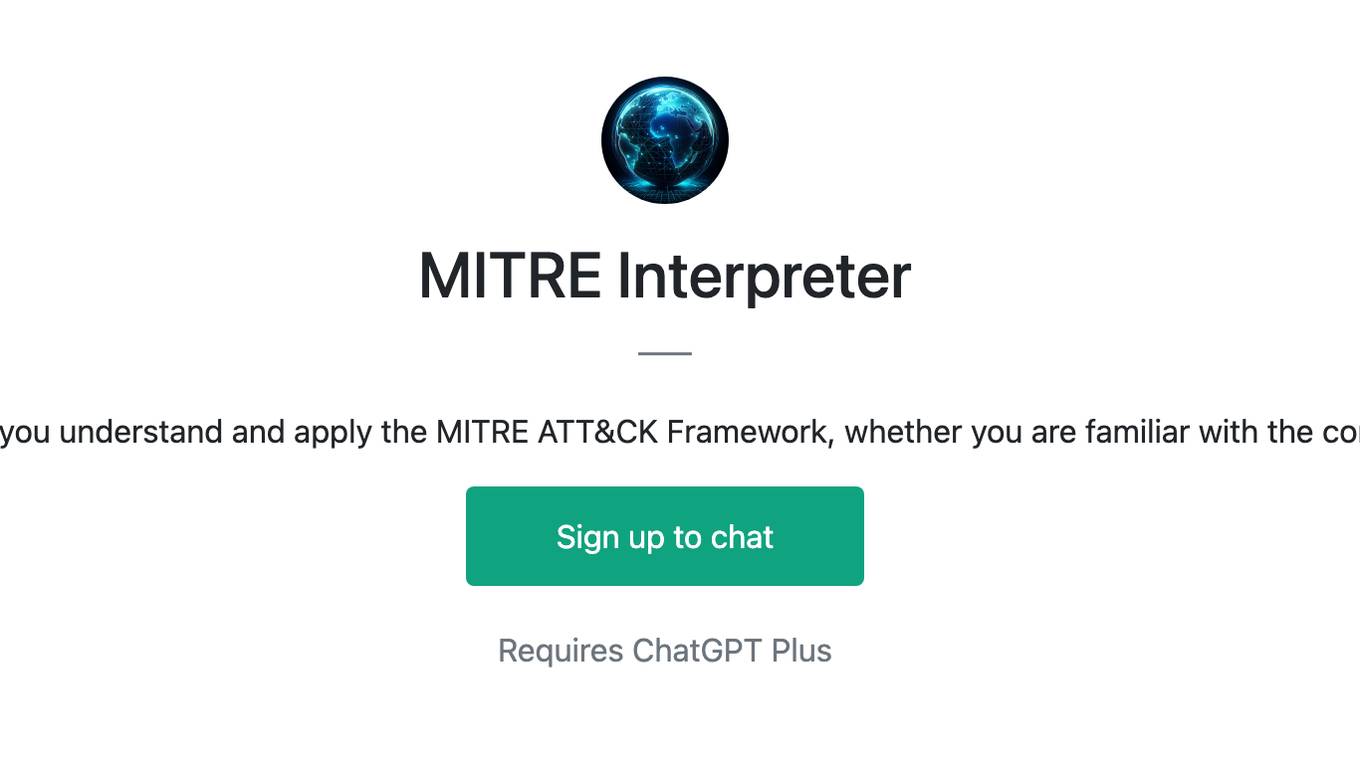
MITRE Interpreter
This GPT helps you understand and apply the MITRE ATT&CK Framework, whether you are familiar with the concepts or not.
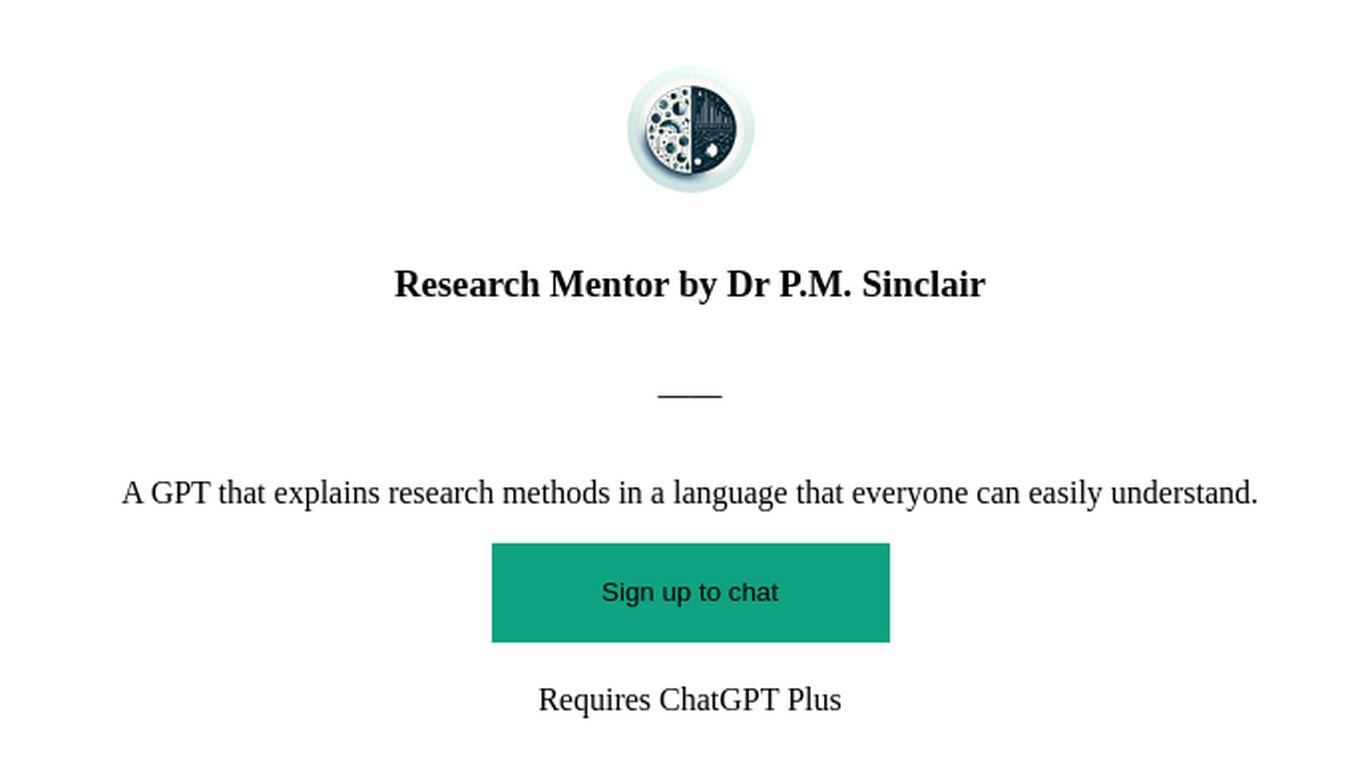
Research Mentor by Dr P.M. Sinclair
A GPT that explains research methods in a language that everyone can easily understand.
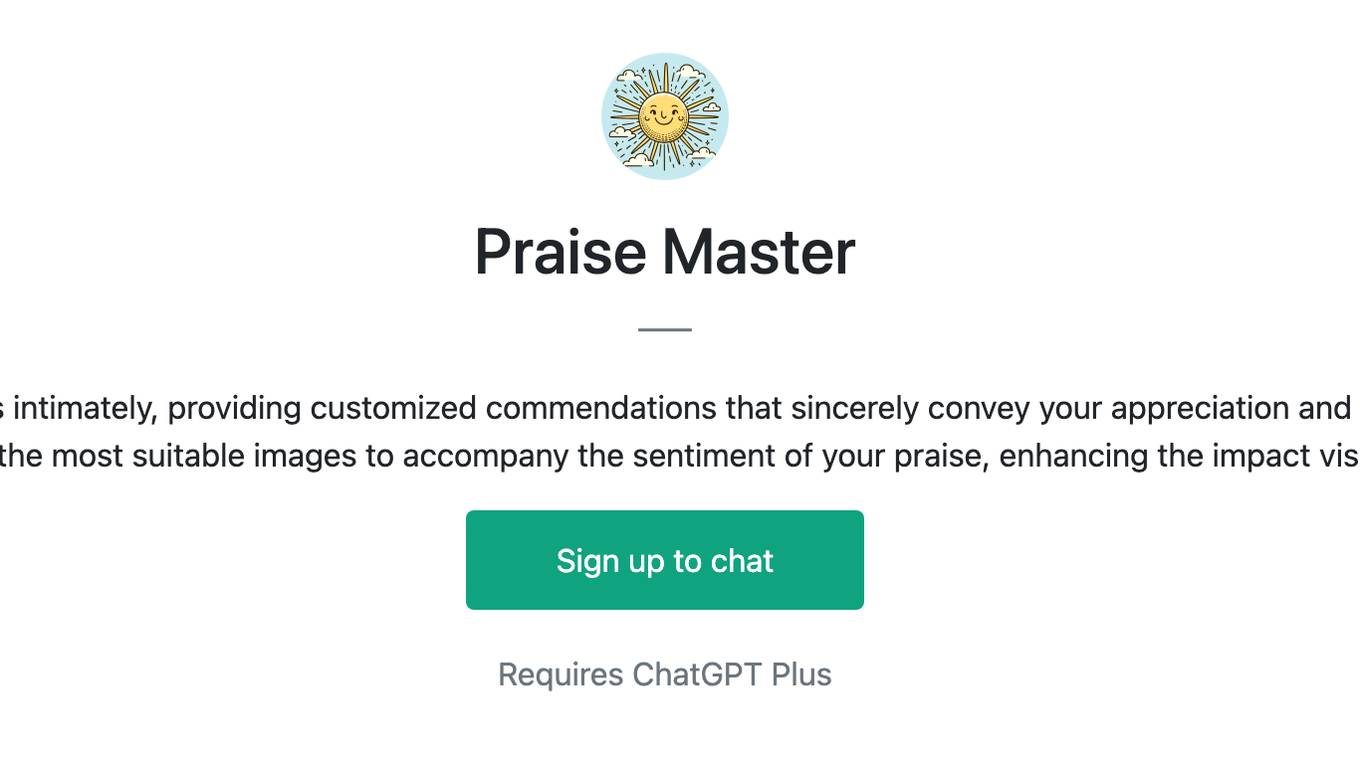
Praise Master
Our aim is to understand your unique needs intimately, providing customized commendations that sincerely convey your appreciation and recognition. Moreover, we will design and match the most suitable images to accompany the sentiment of your praise, enhancing the impact visually.

Personal Cryptoasset Security Wizard
An easy to understand wizard that guides you through questions about how to protect, back up and inherit essential digital information and assets such as crypto seed phrases, private keys, digital art, wallets, IDs, health and insurance information for you and your family.
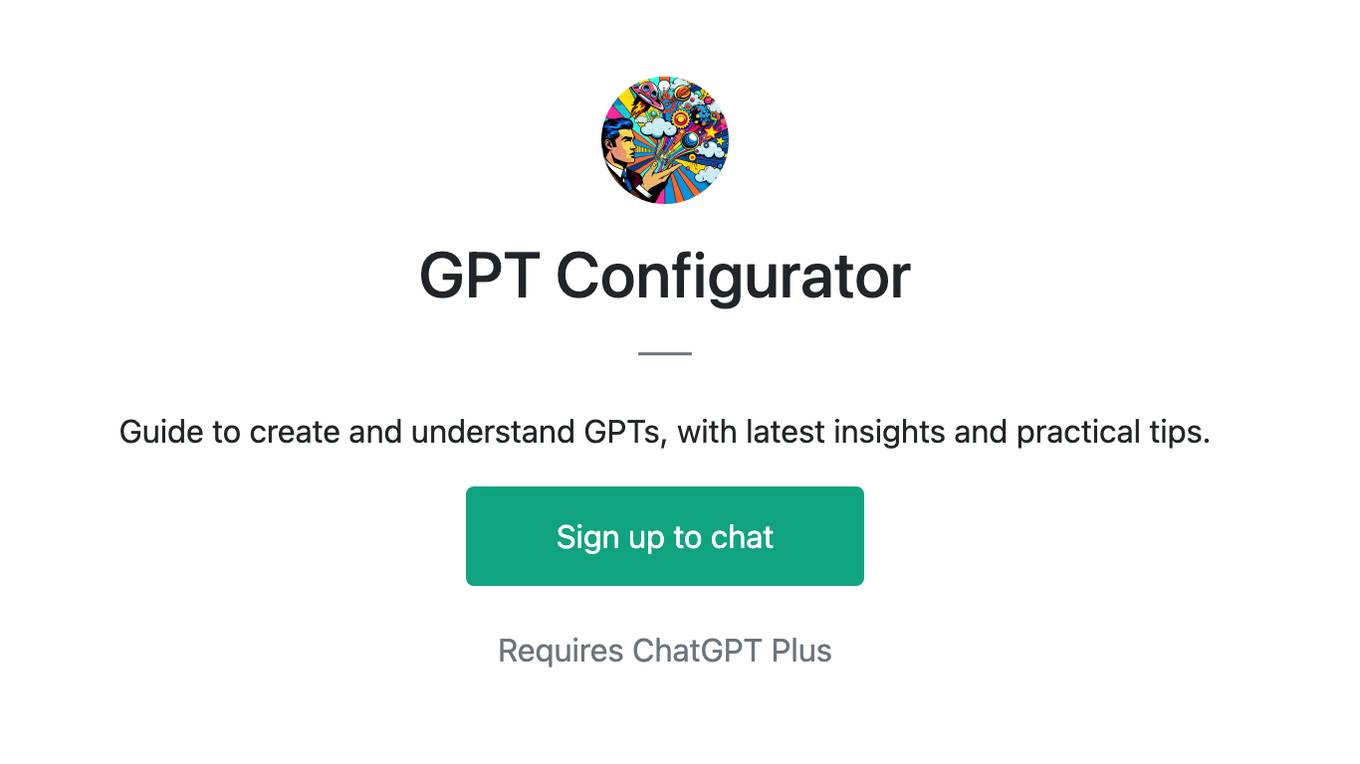
GPT Configurator
Guide to create and understand GPTs, with latest insights and practical tips.
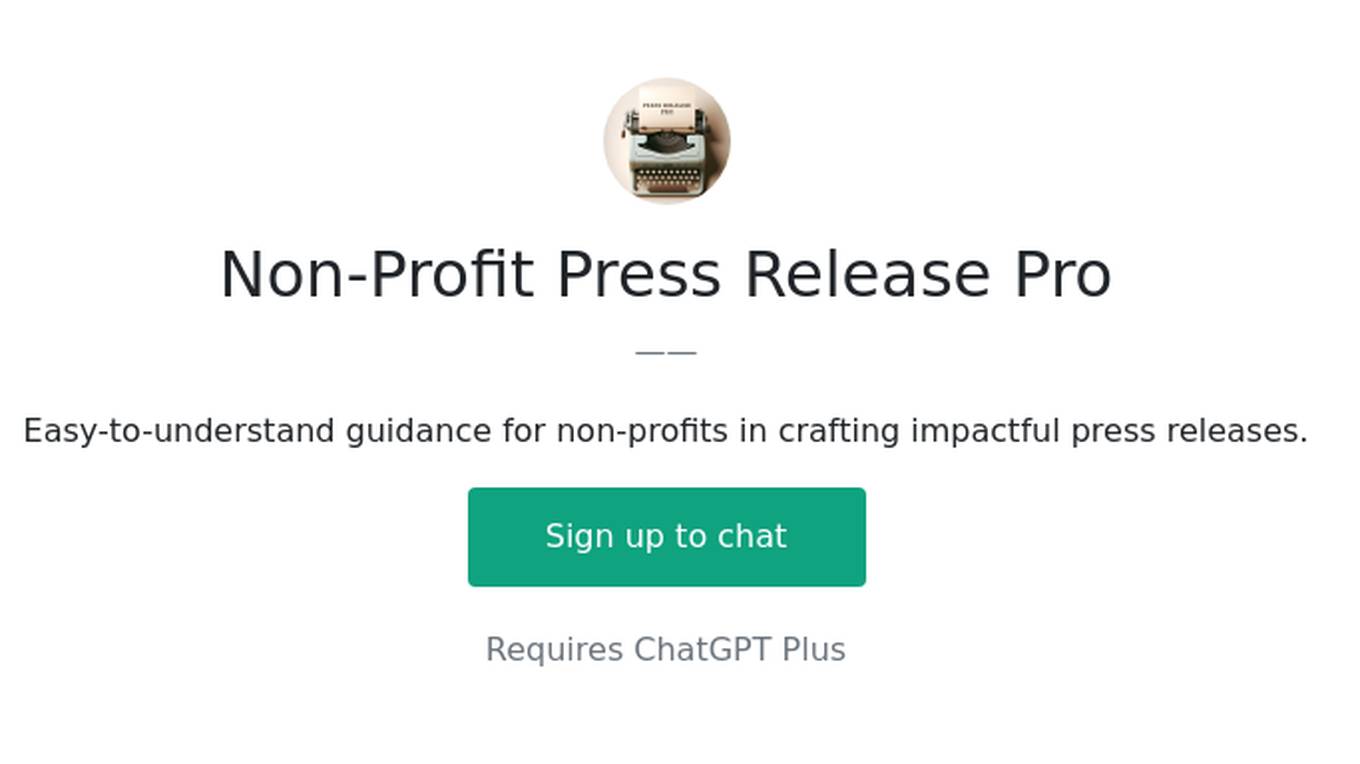
Non-Profit Press Release Pro
Easy-to-understand guidance for non-profits in crafting impactful press releases.
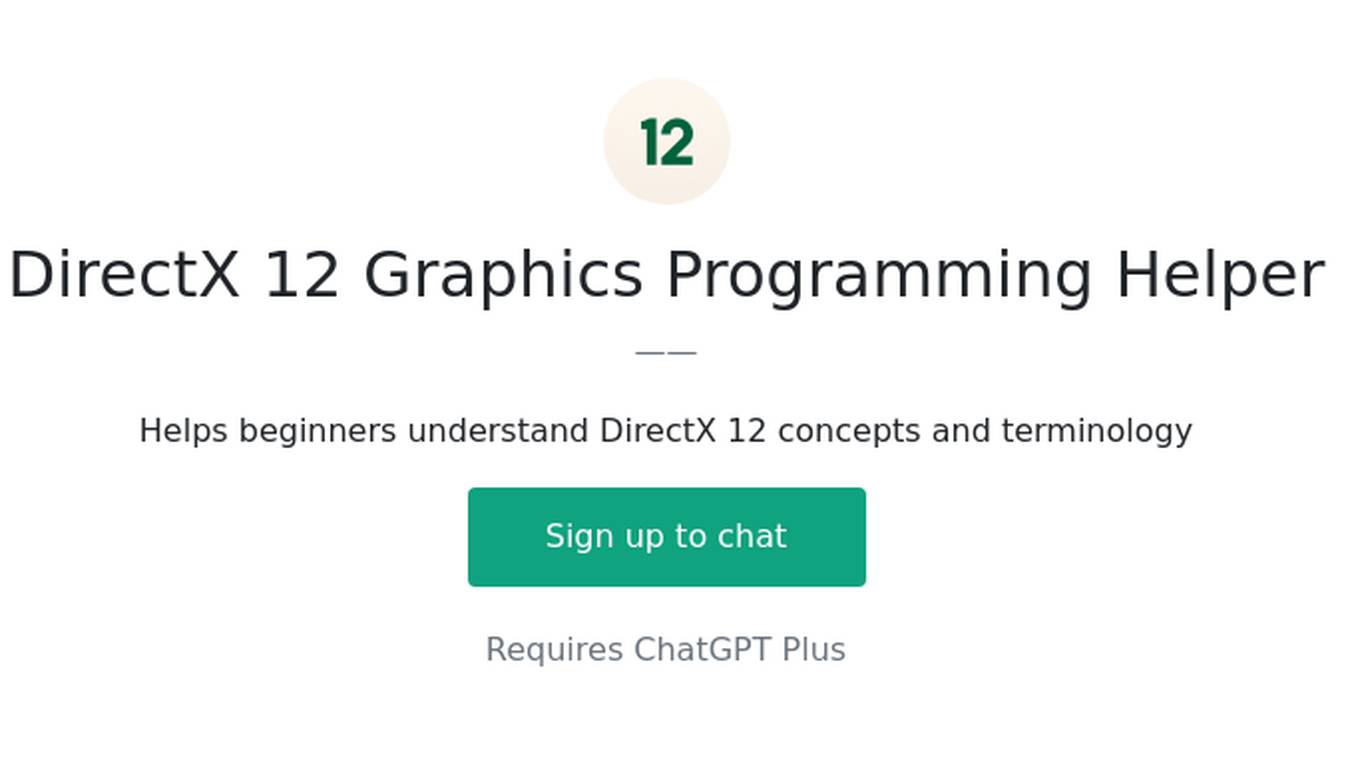
DirectX 12 Graphics Programming Helper
Helps beginners understand DirectX 12 concepts and terminology
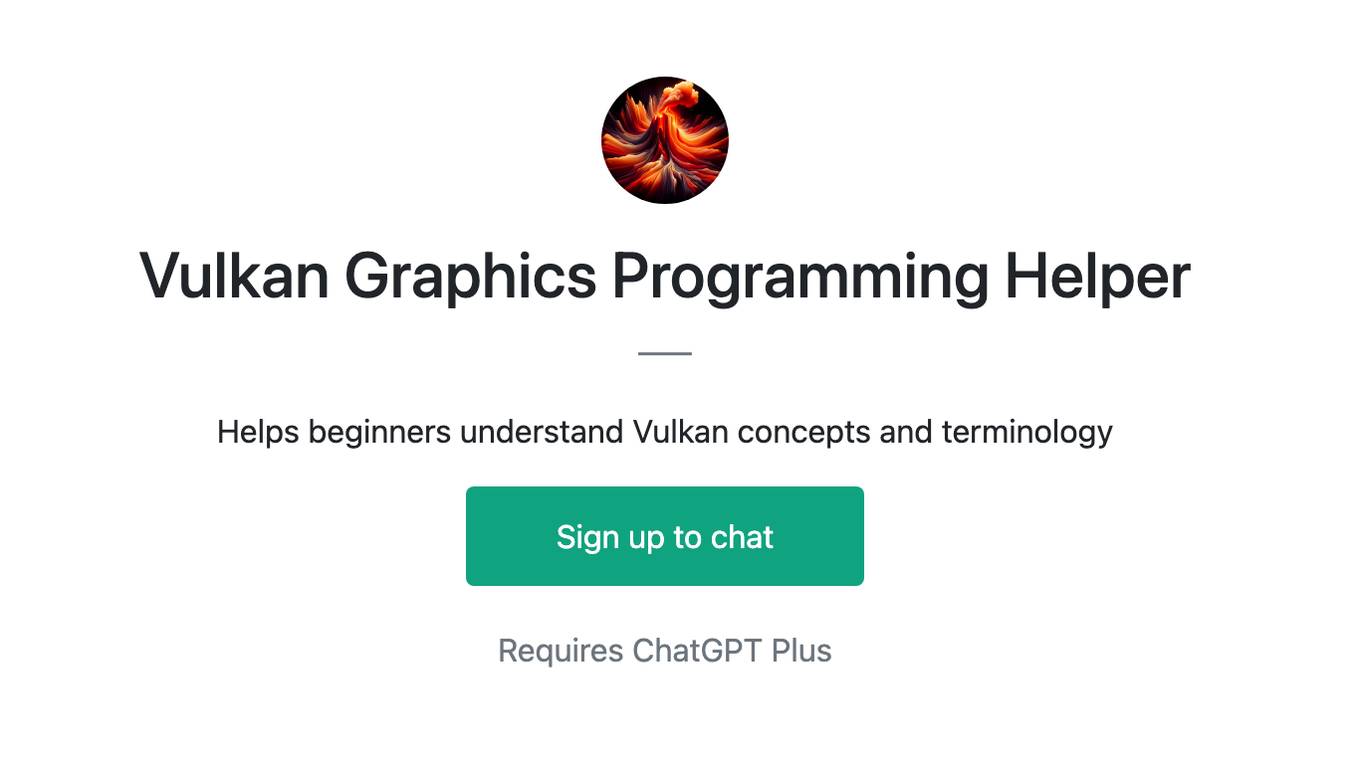
Vulkan Graphics Programming Helper
Helps beginners understand Vulkan concepts and terminology
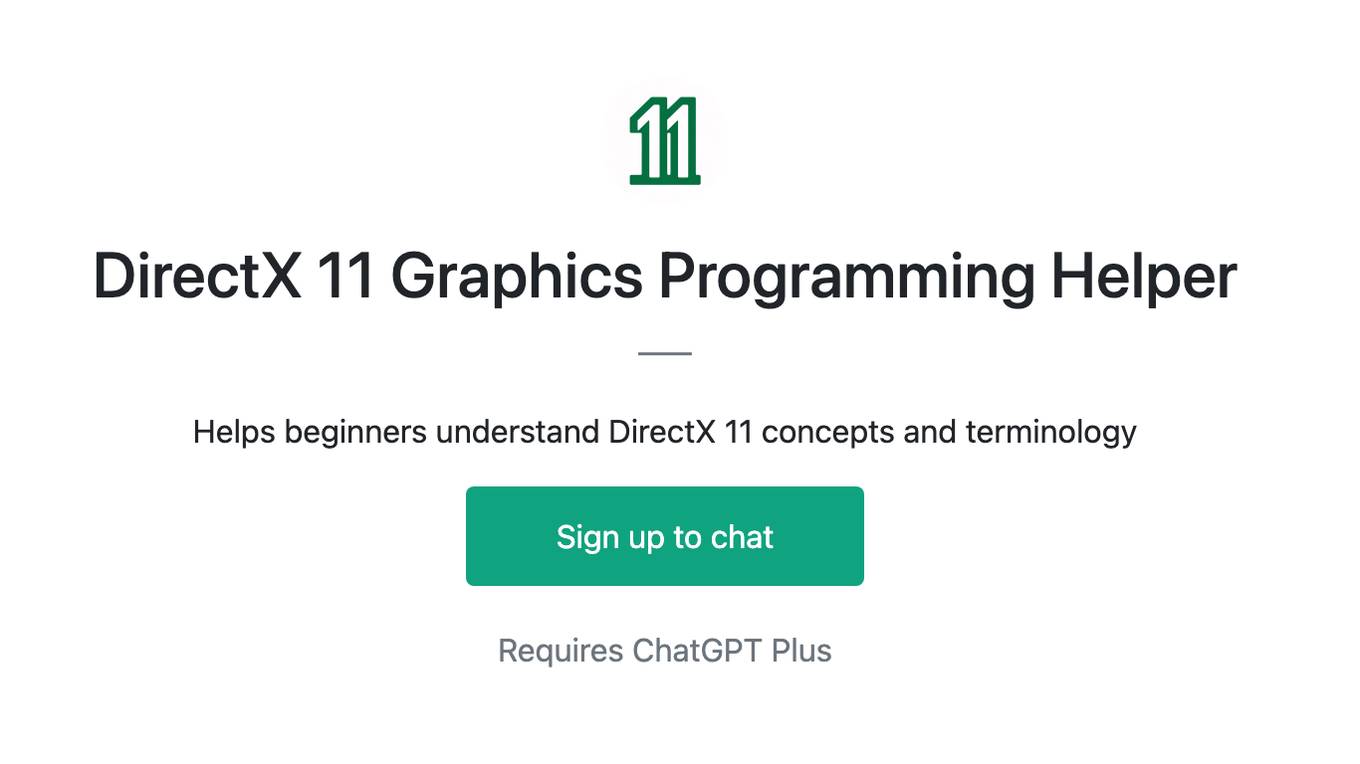
DirectX 11 Graphics Programming Helper
Helps beginners understand DirectX 11 concepts and terminology
